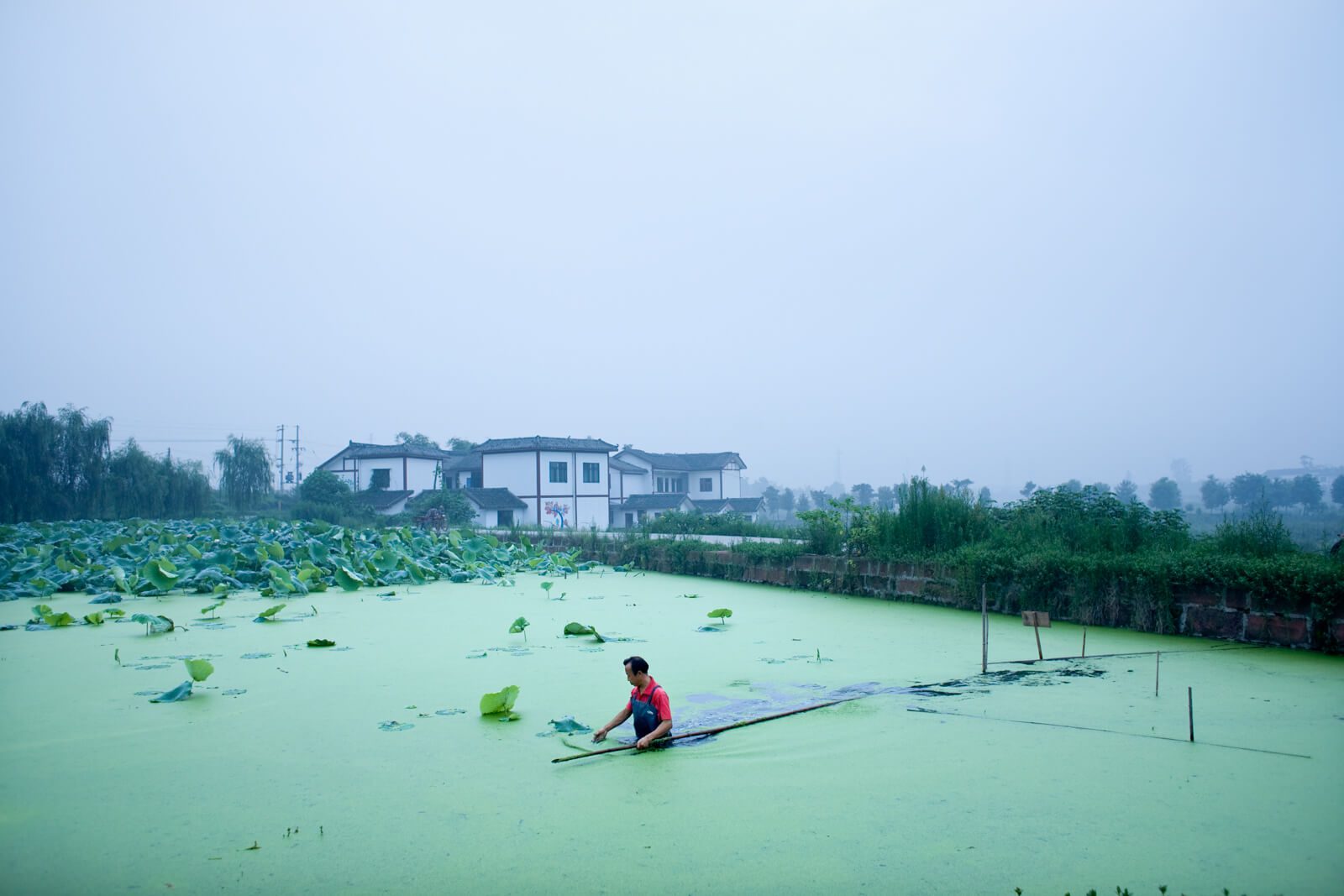
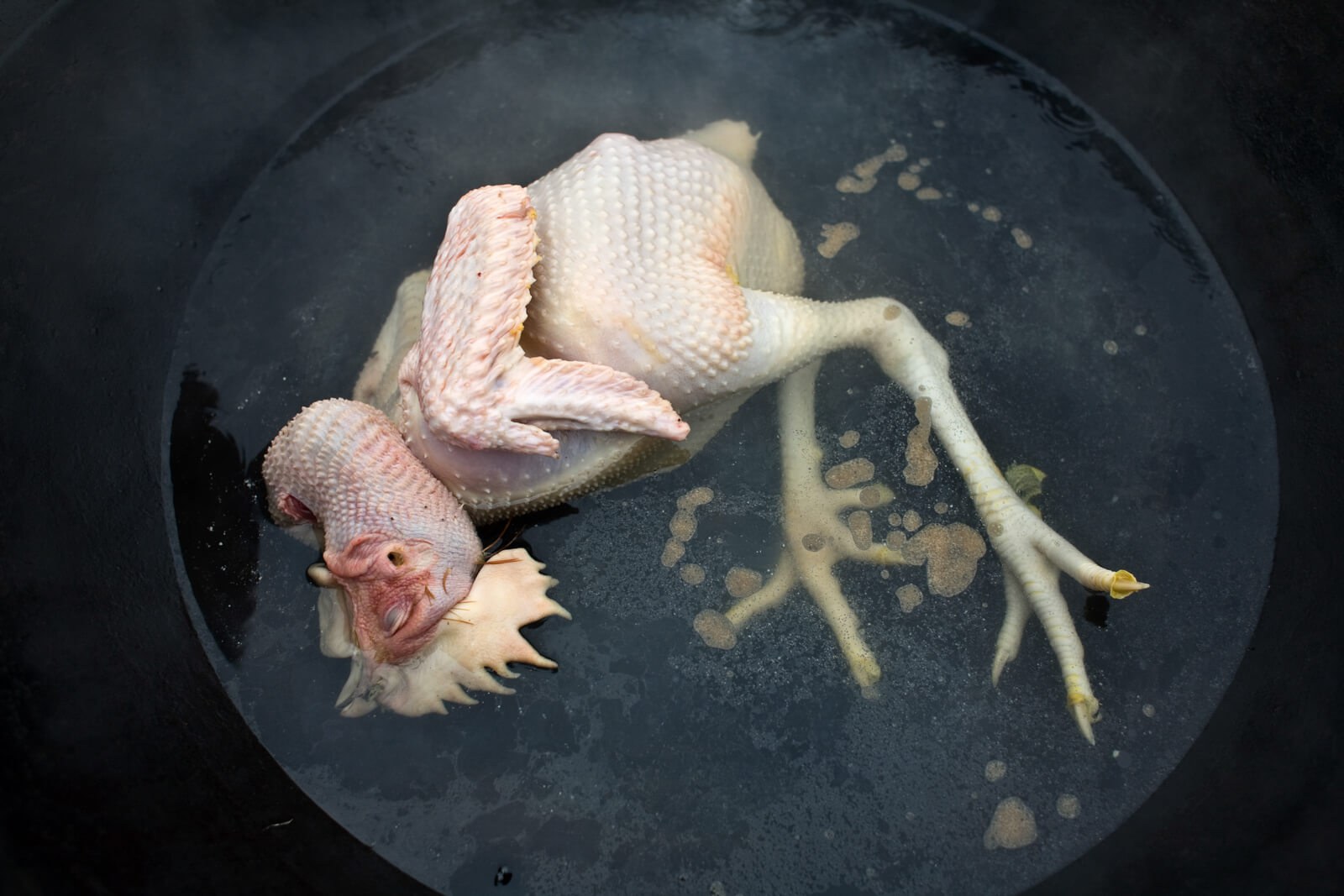
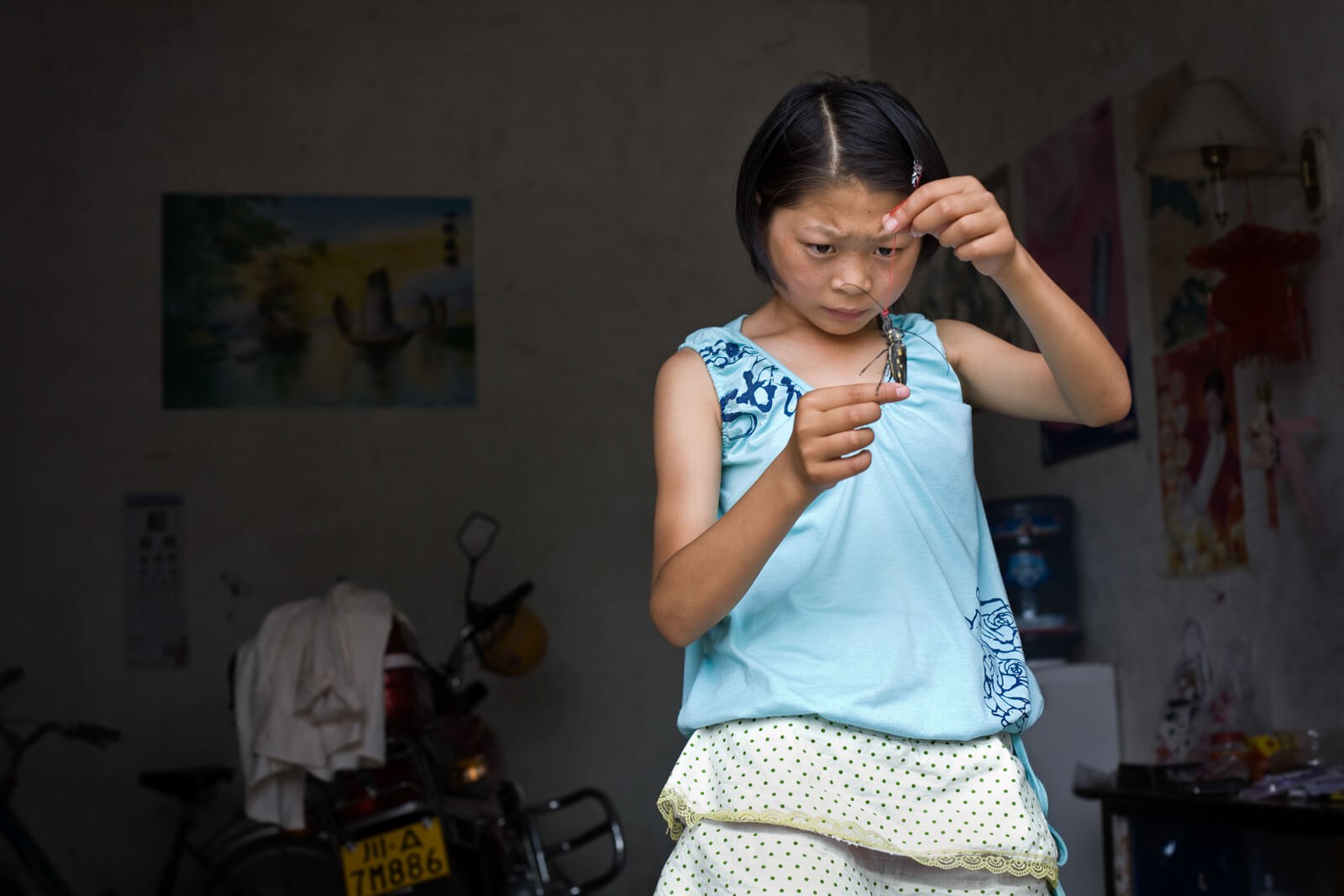
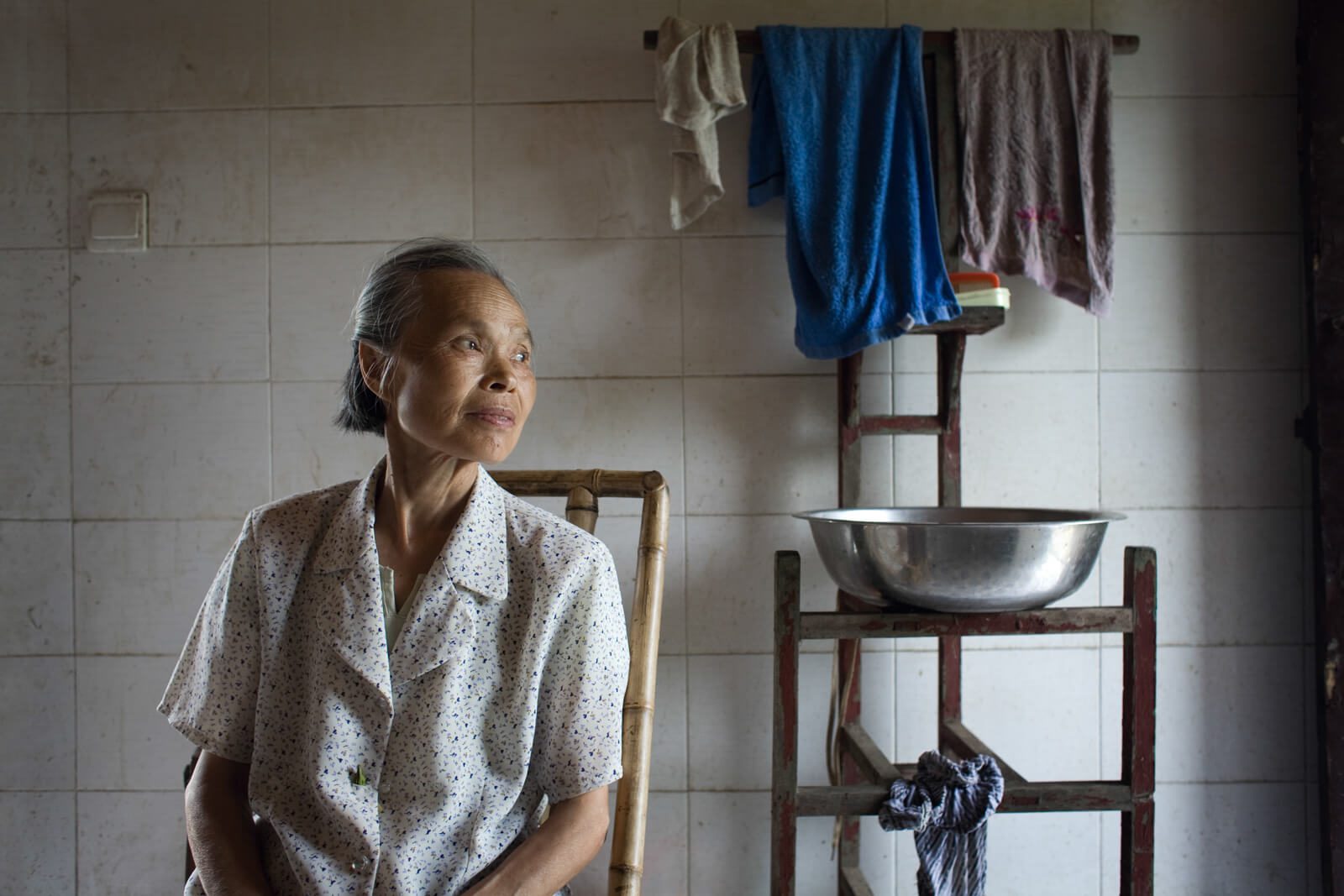
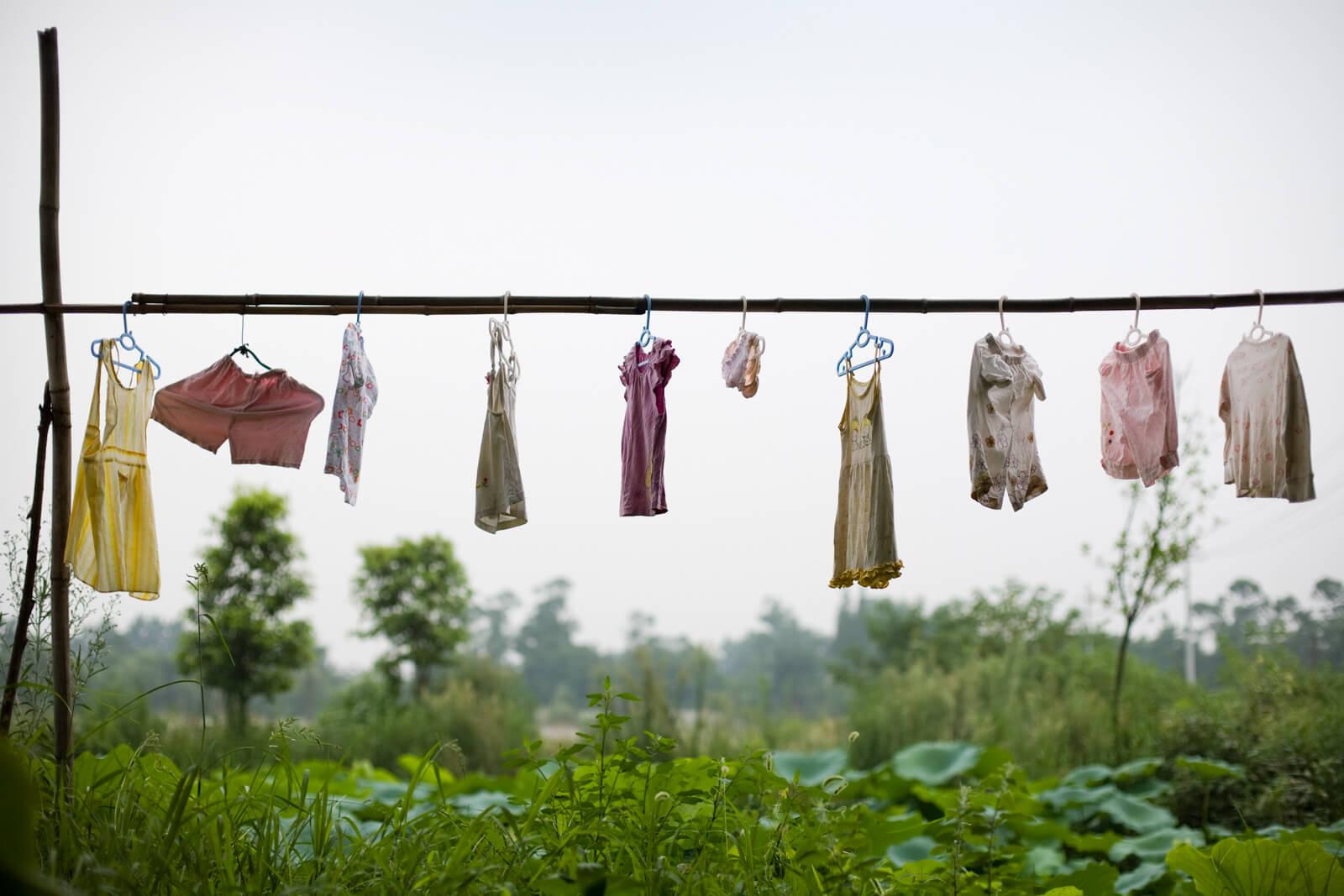
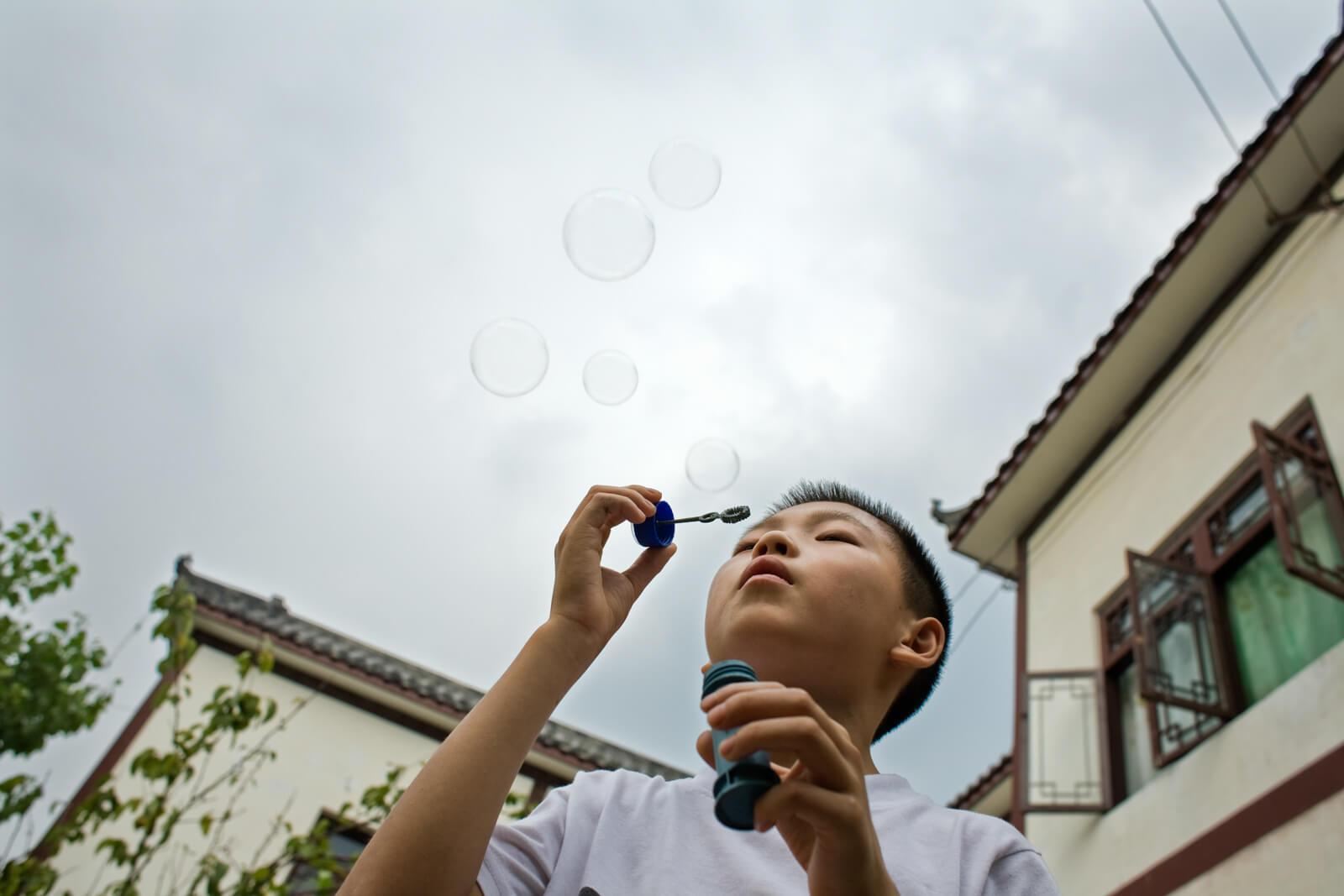
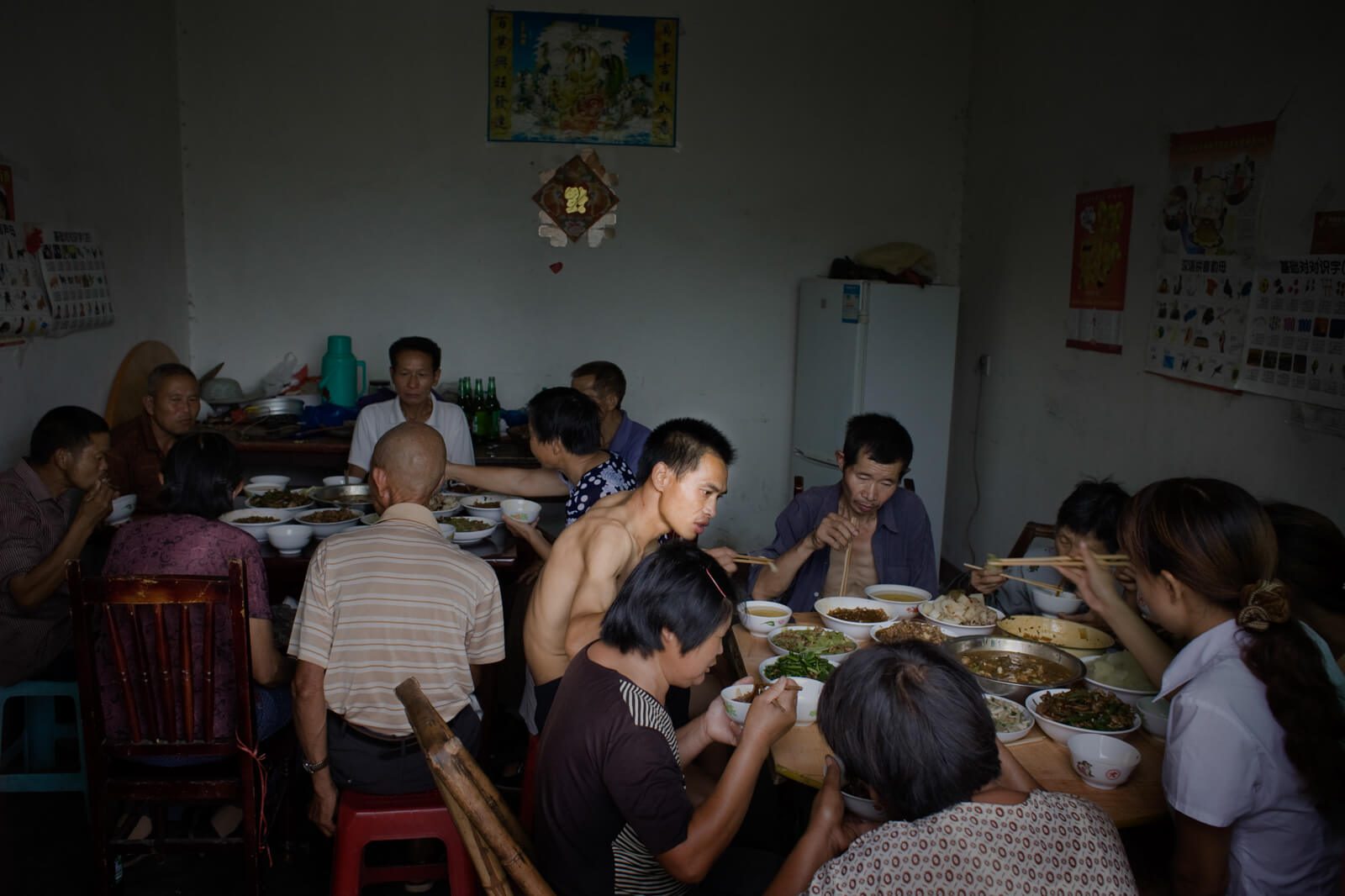
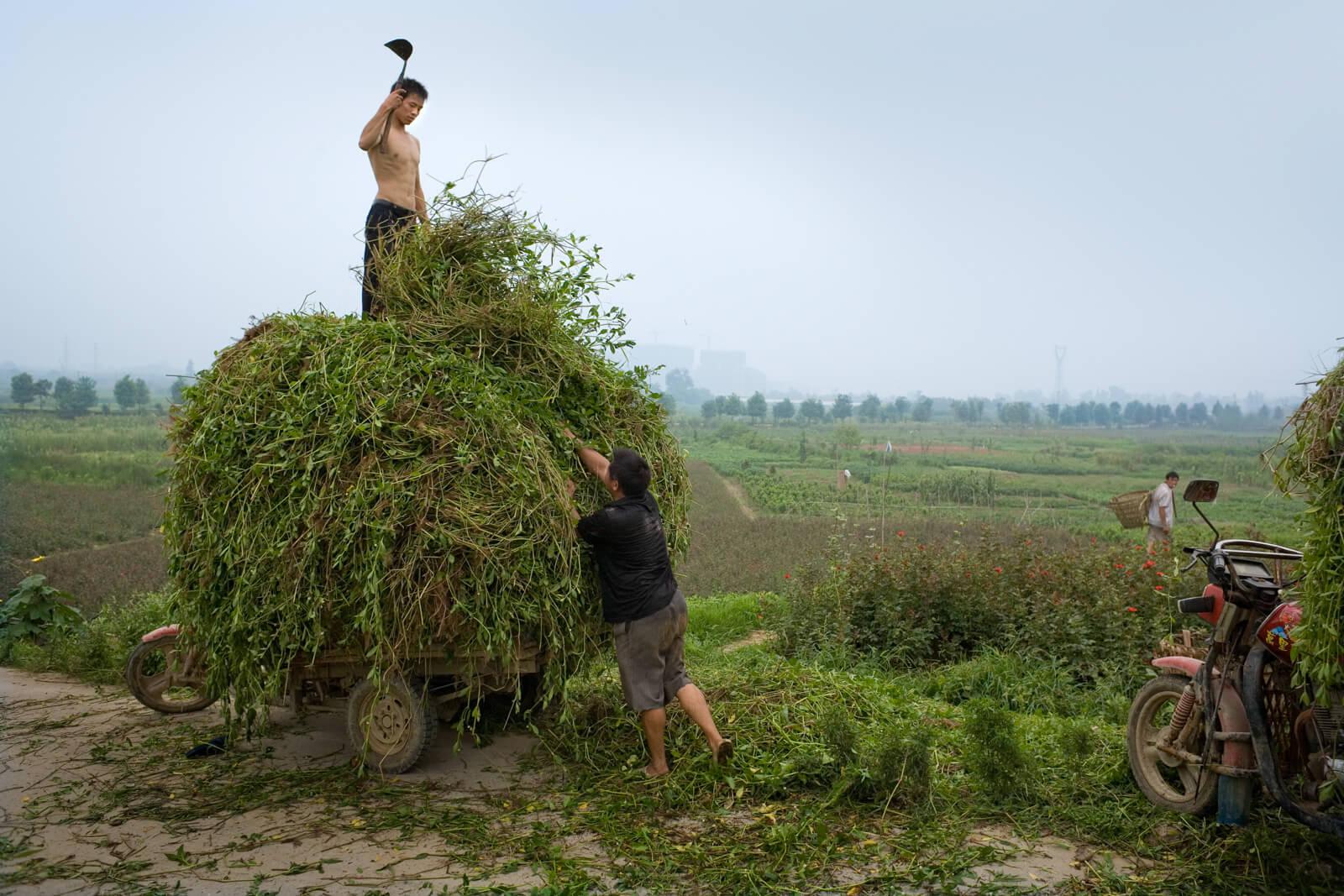

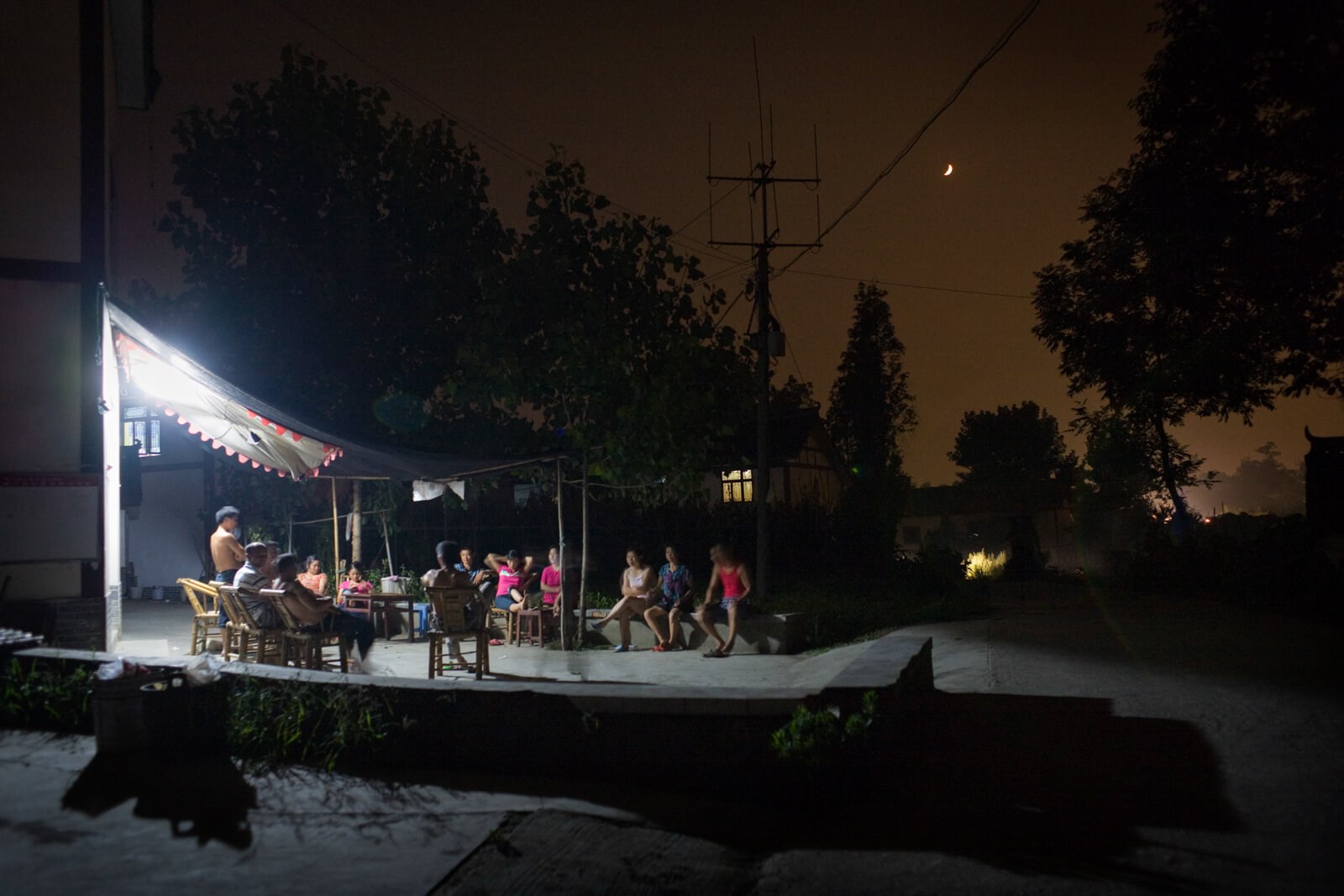

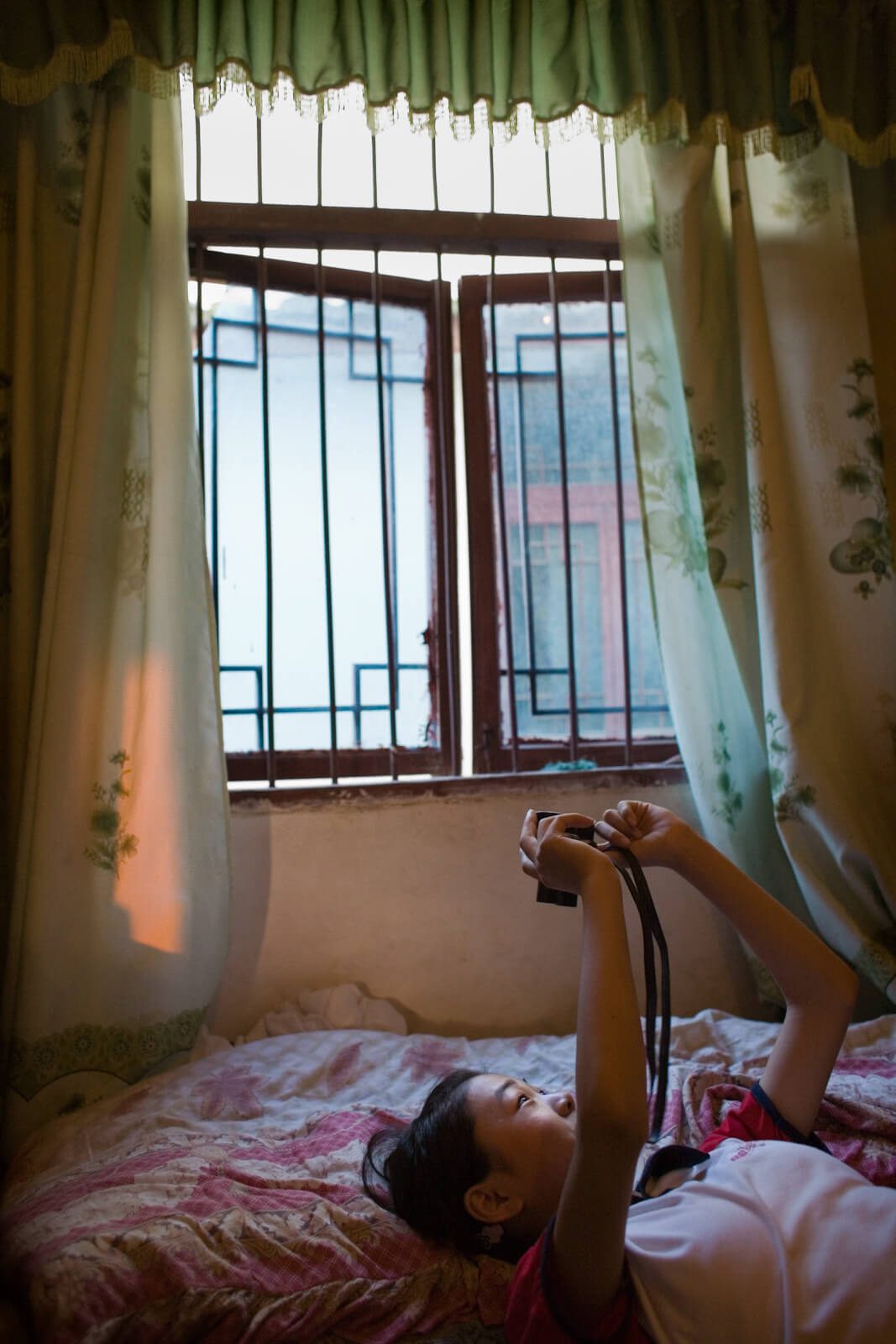
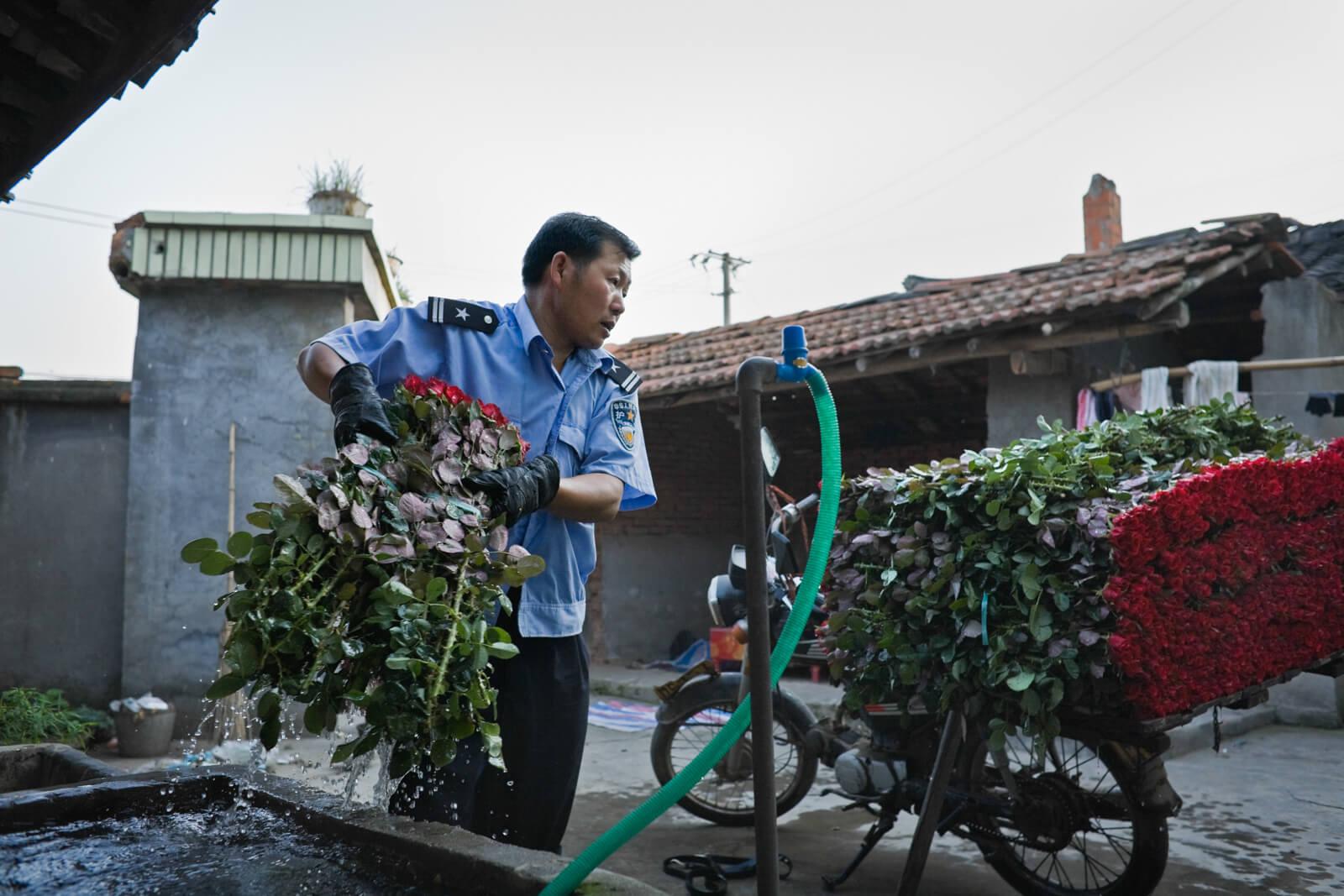
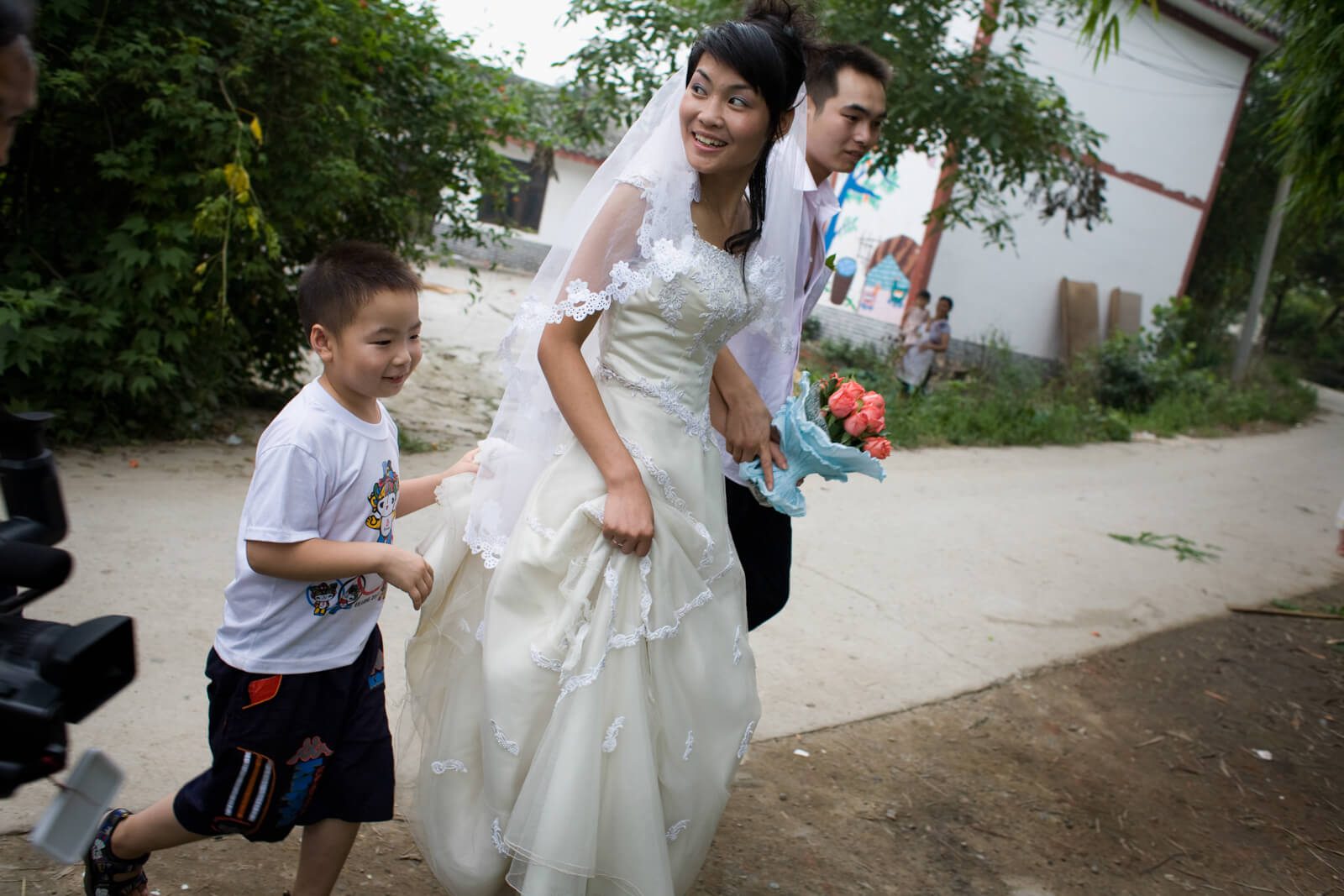
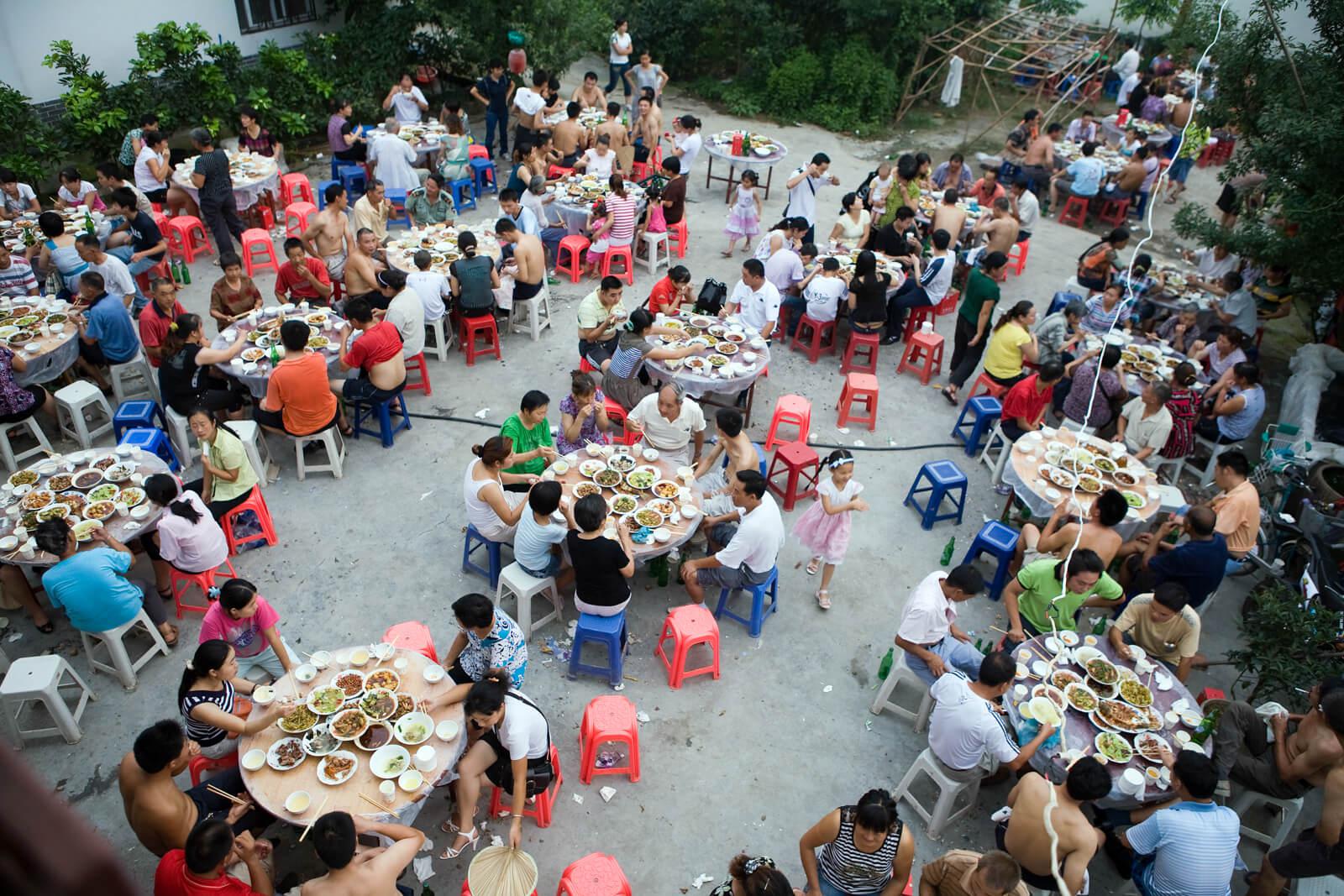
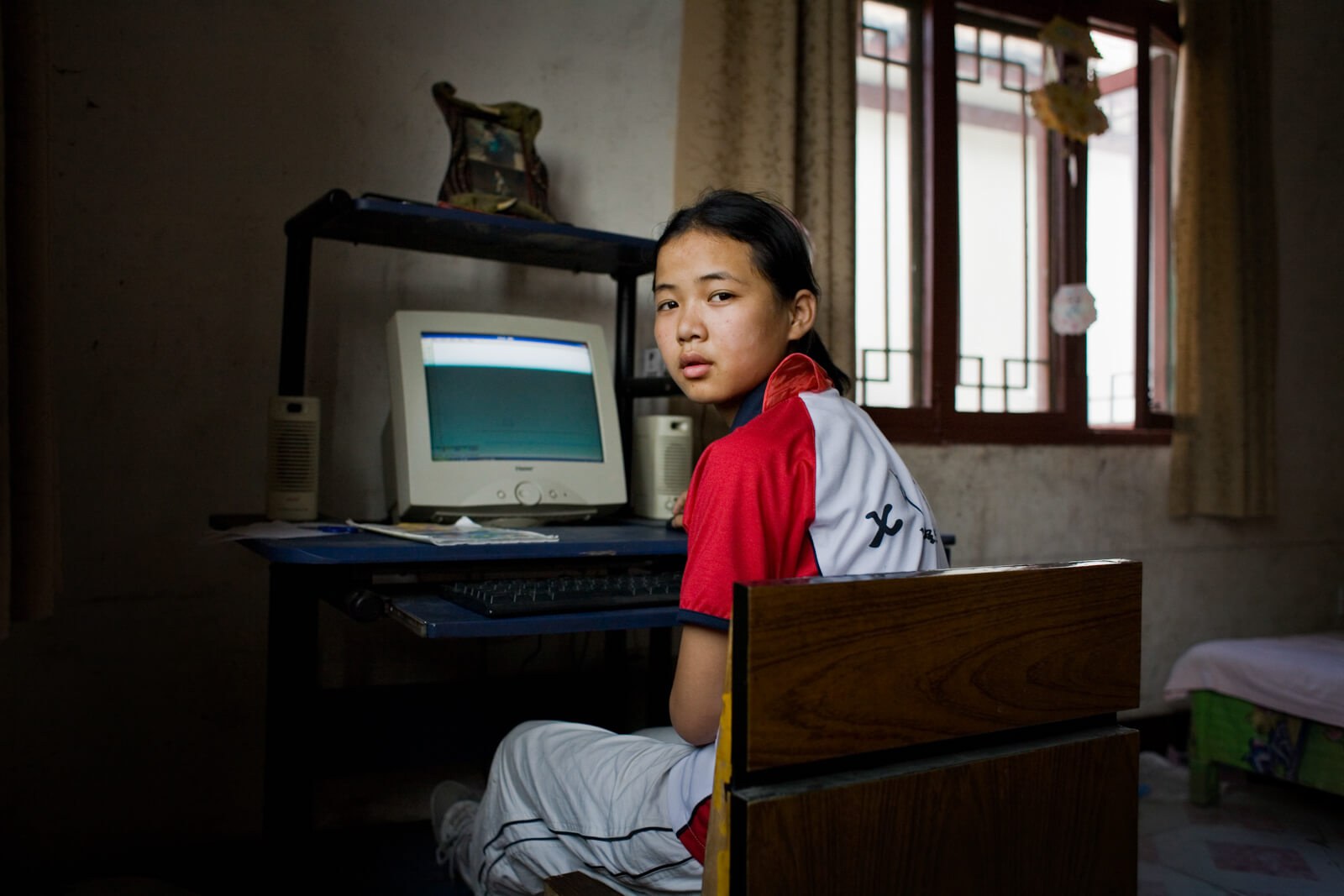
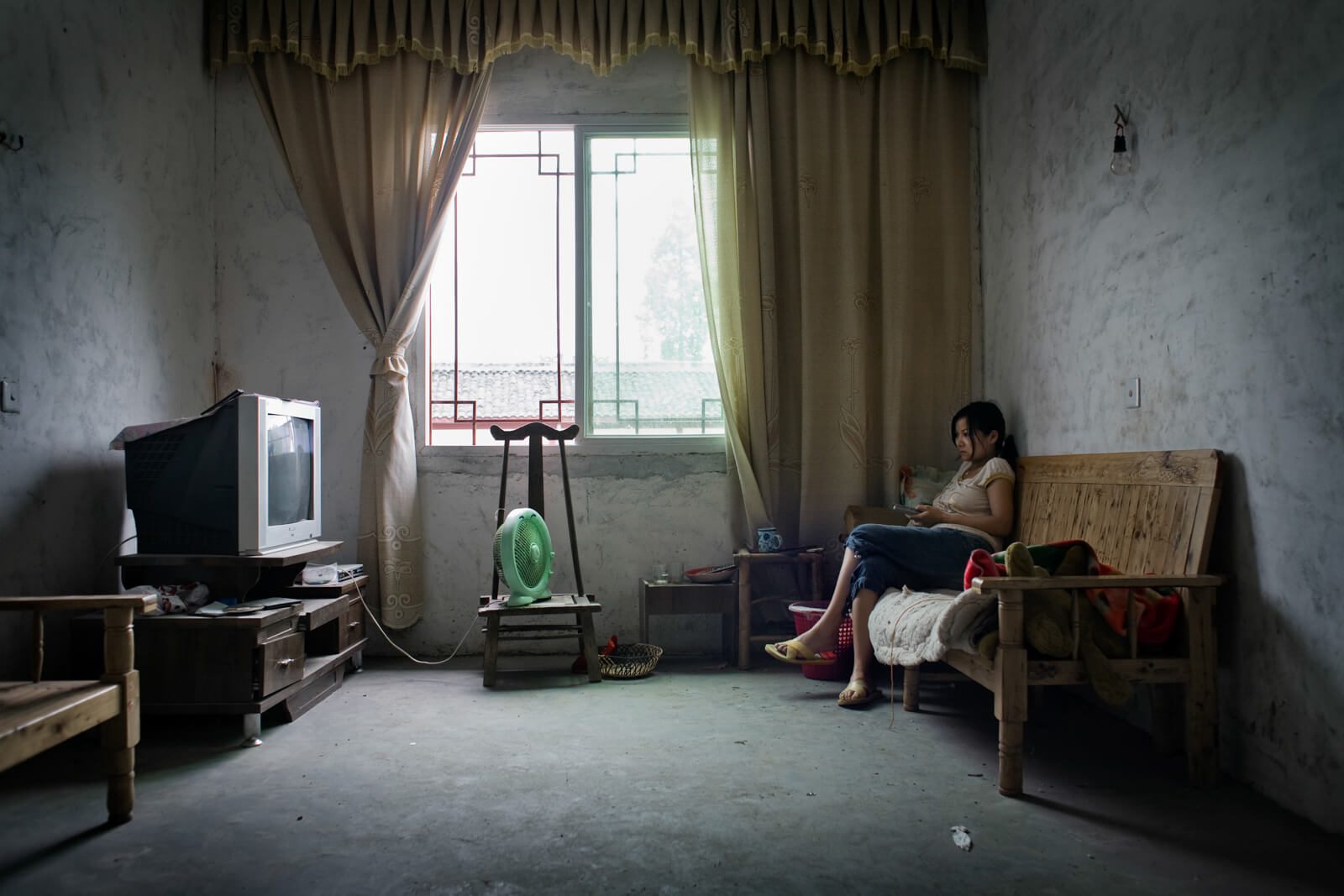
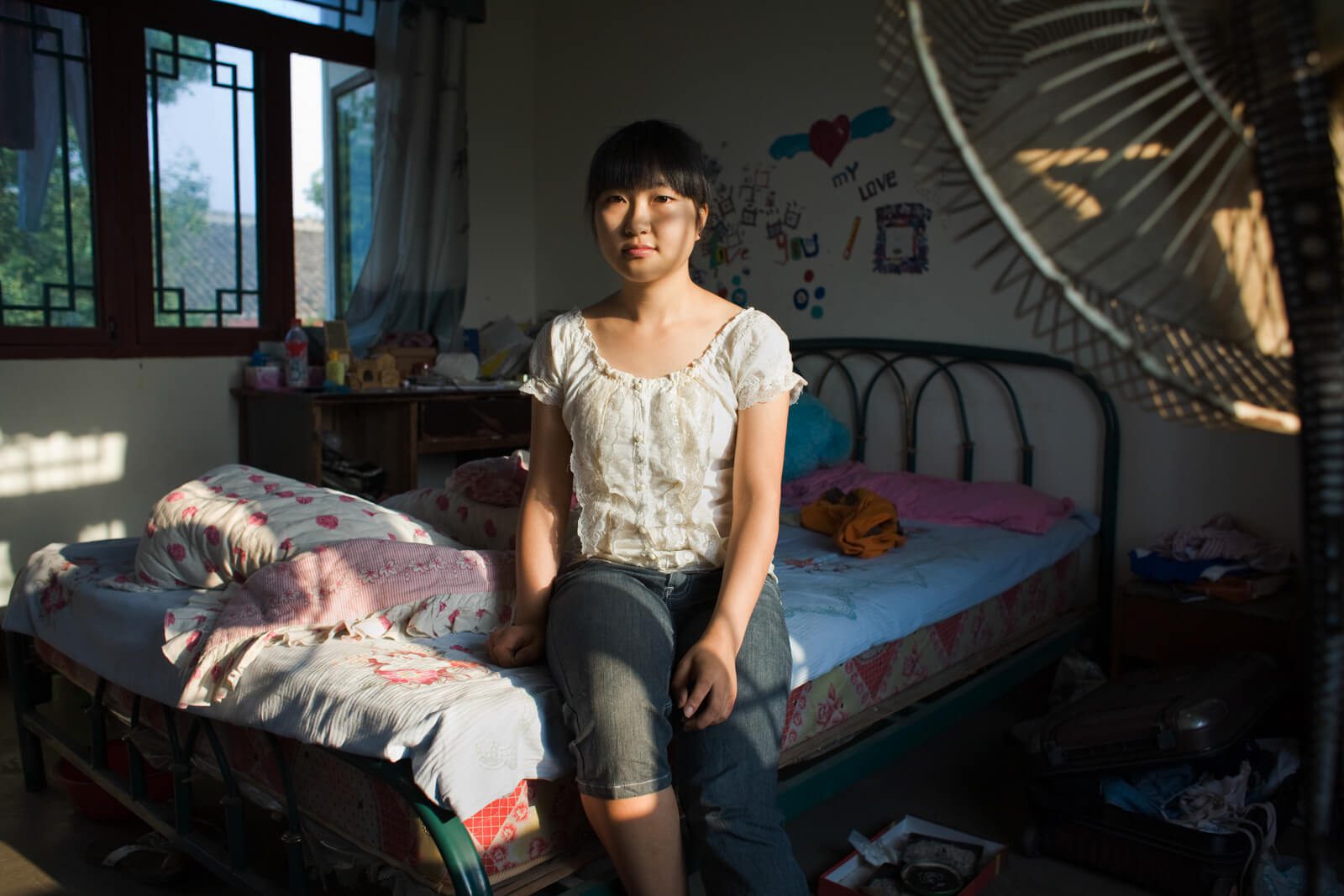
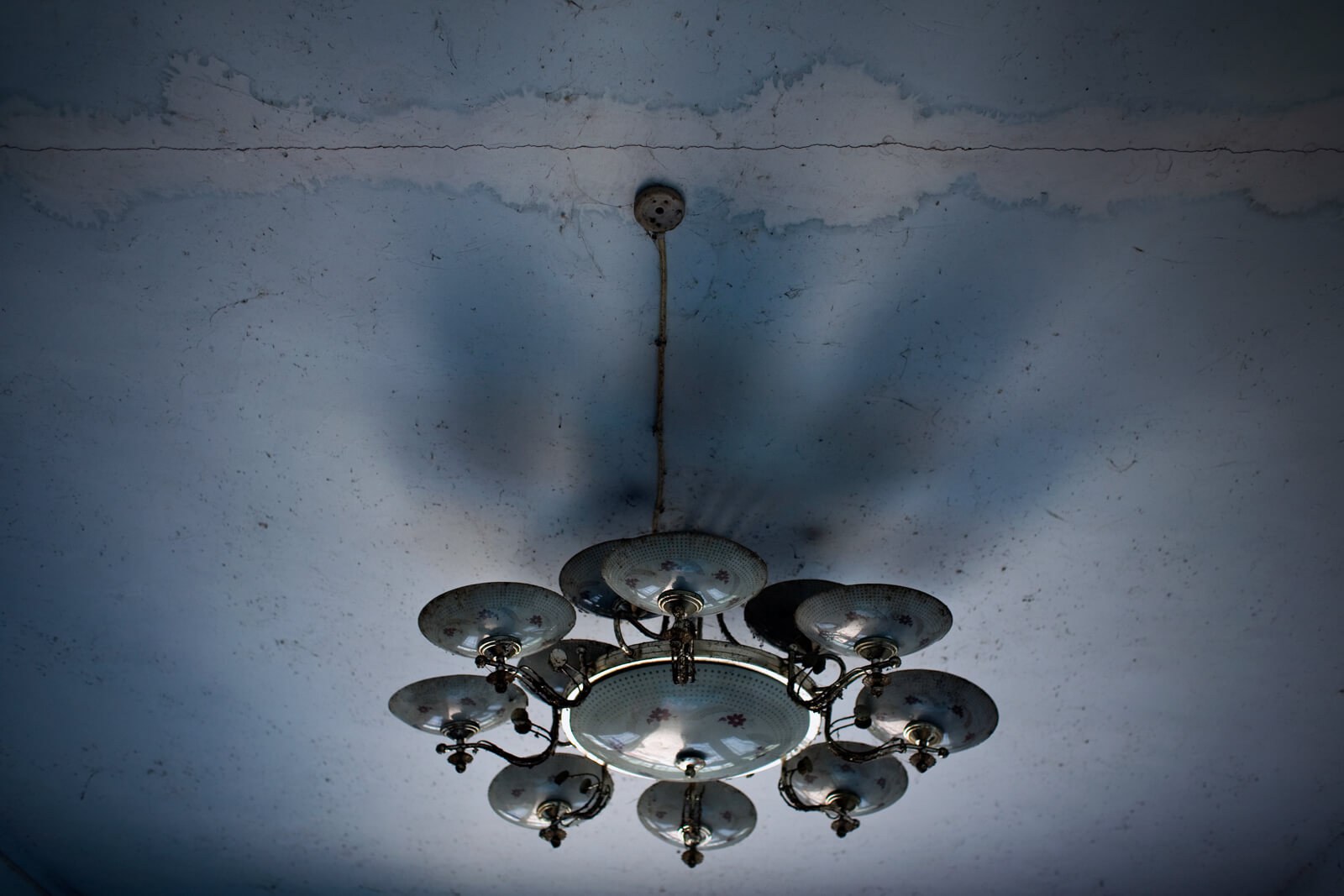
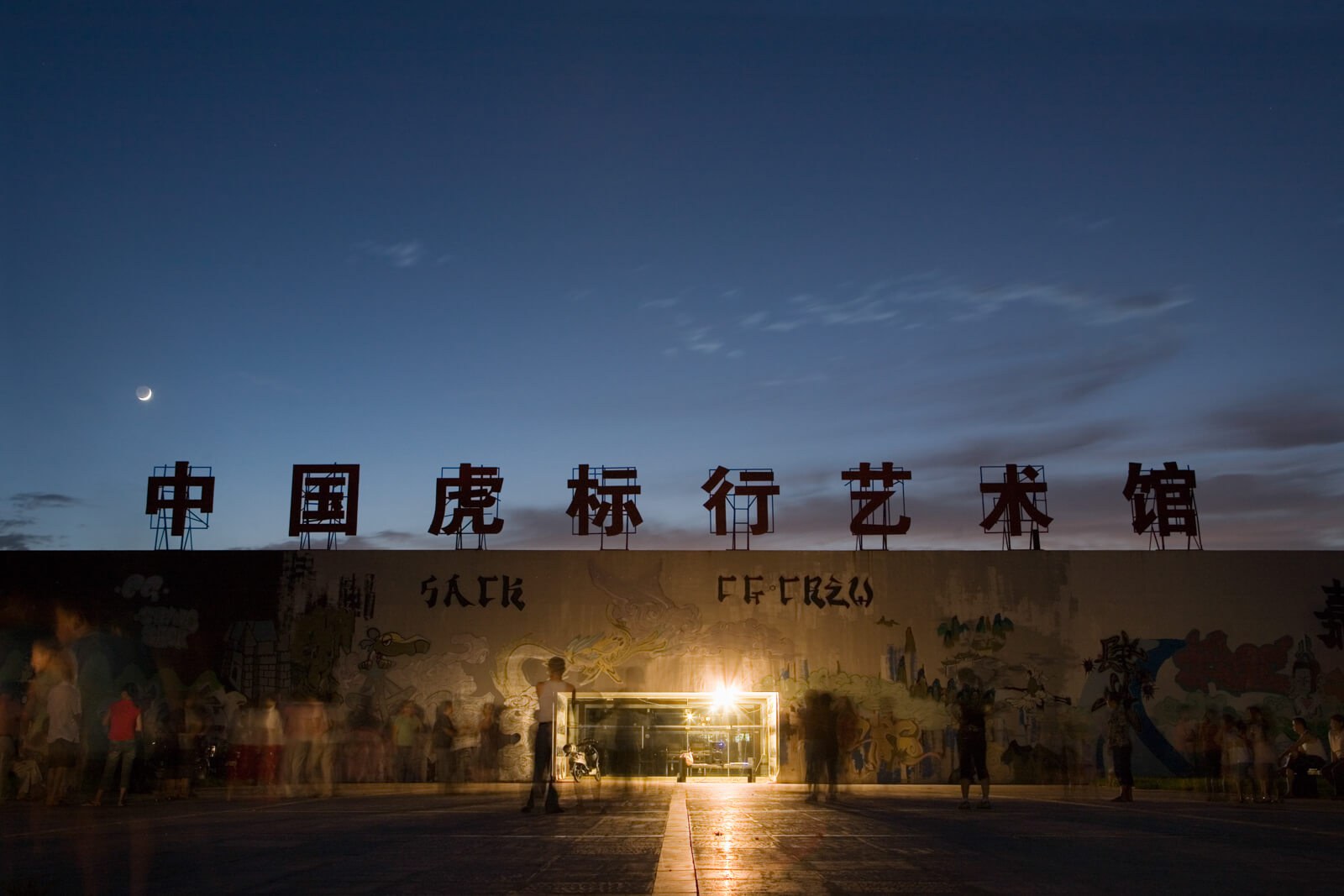
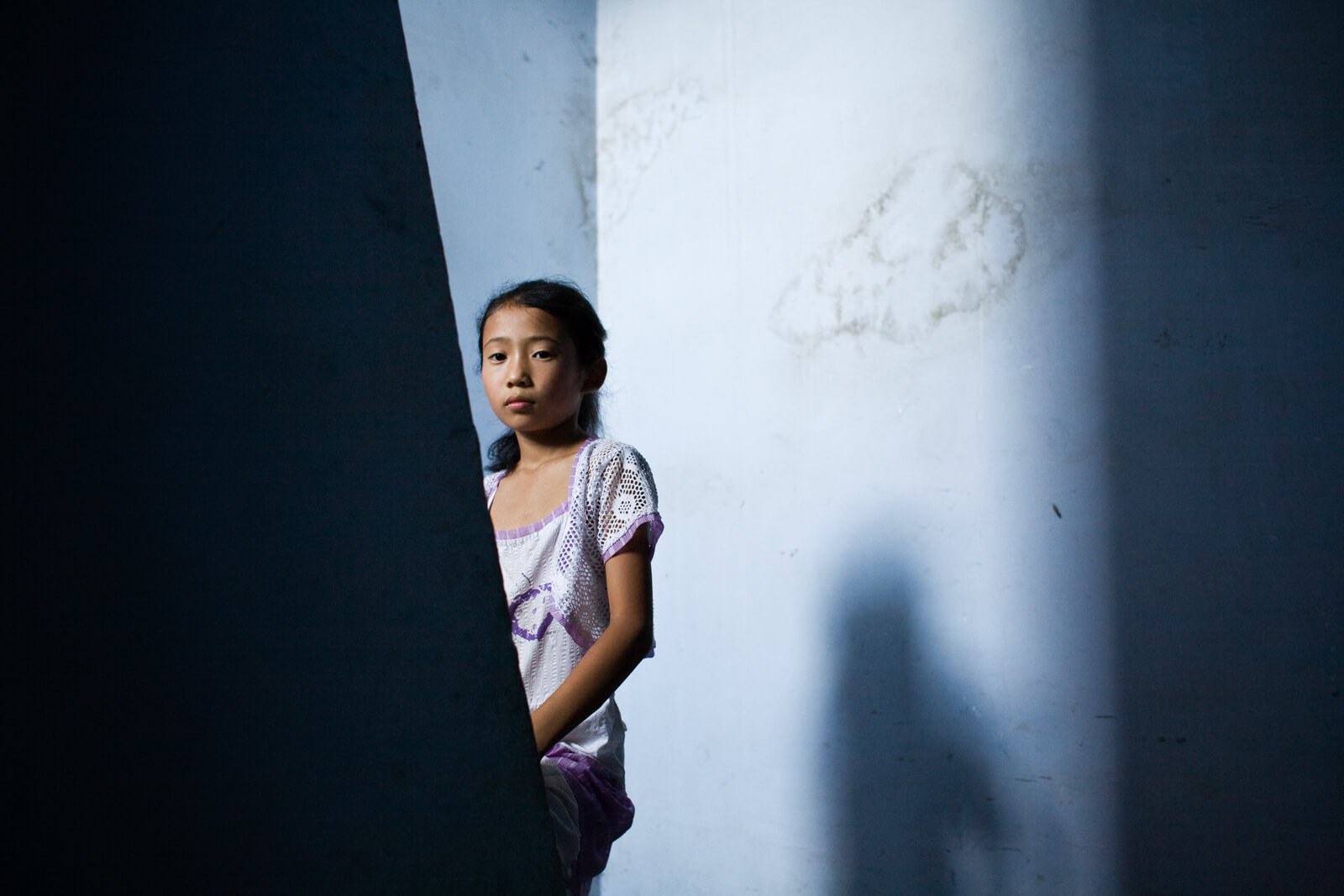
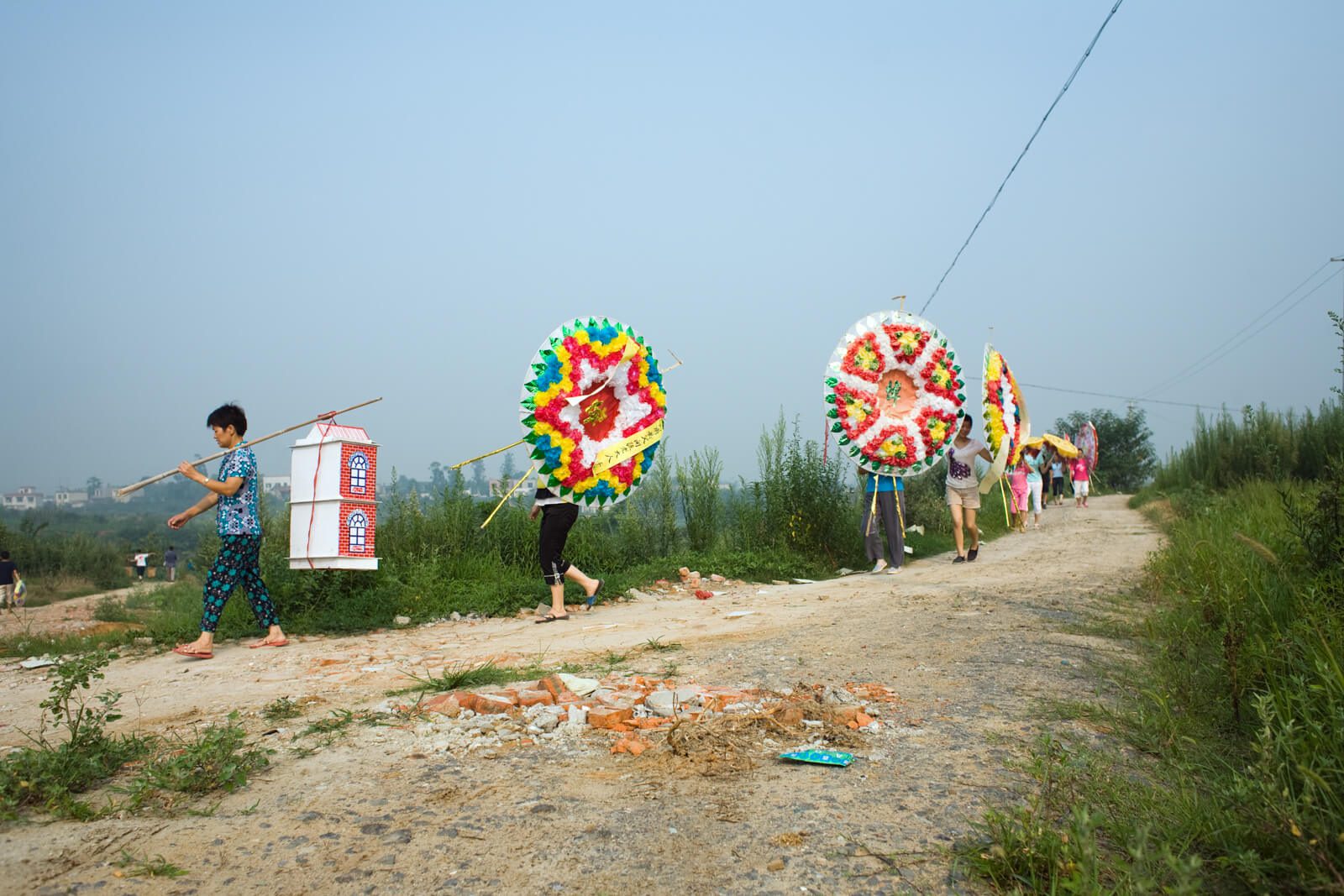
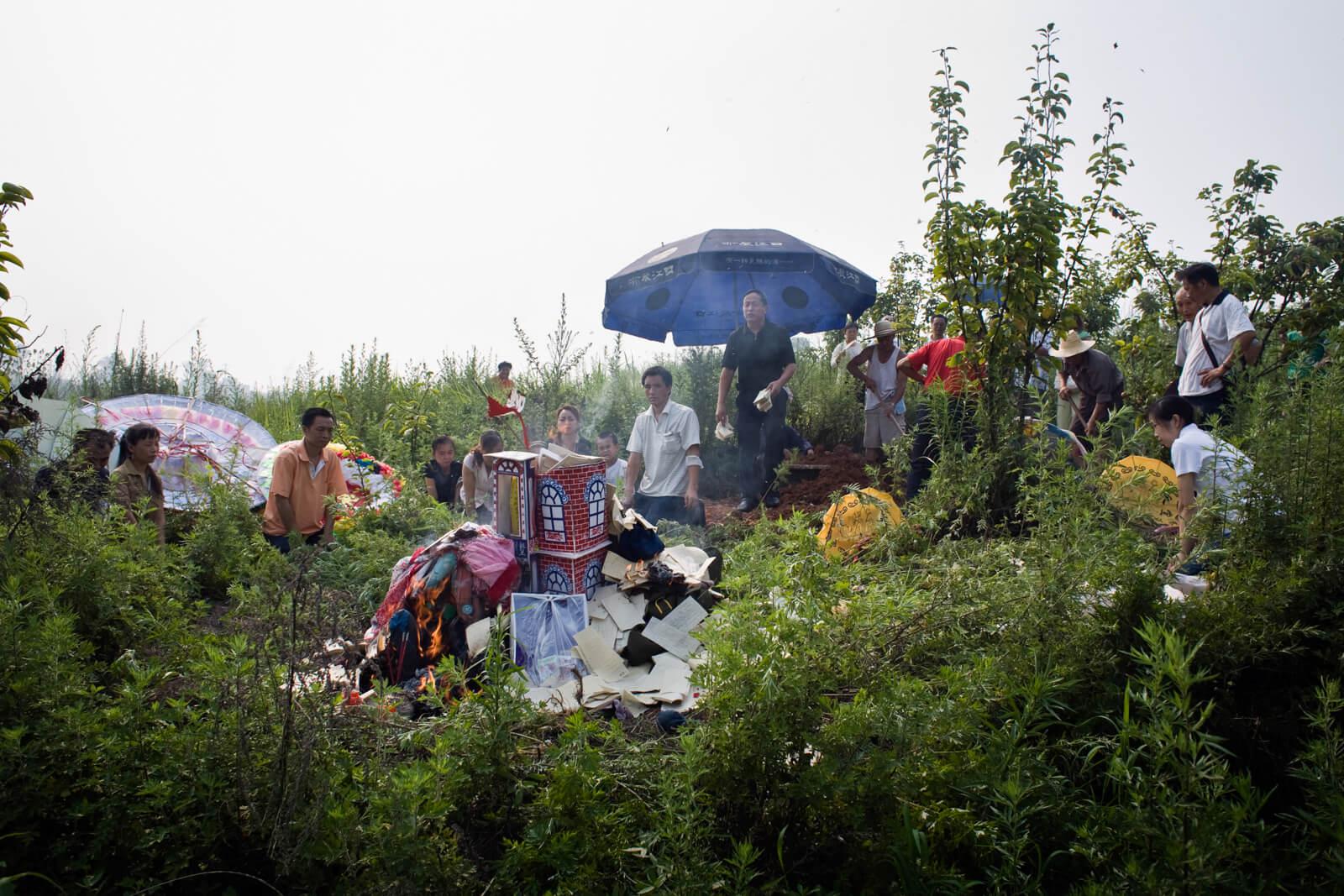
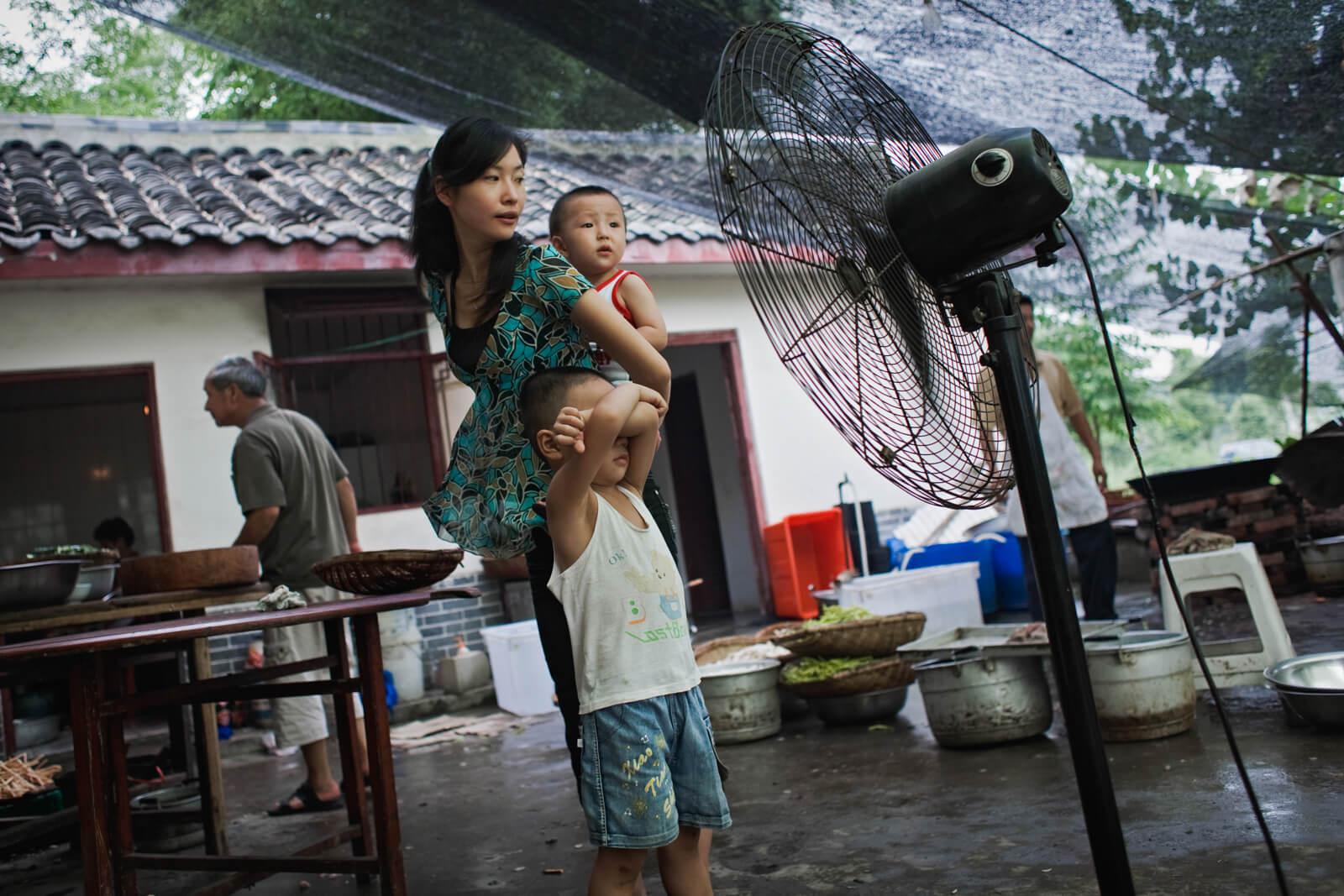
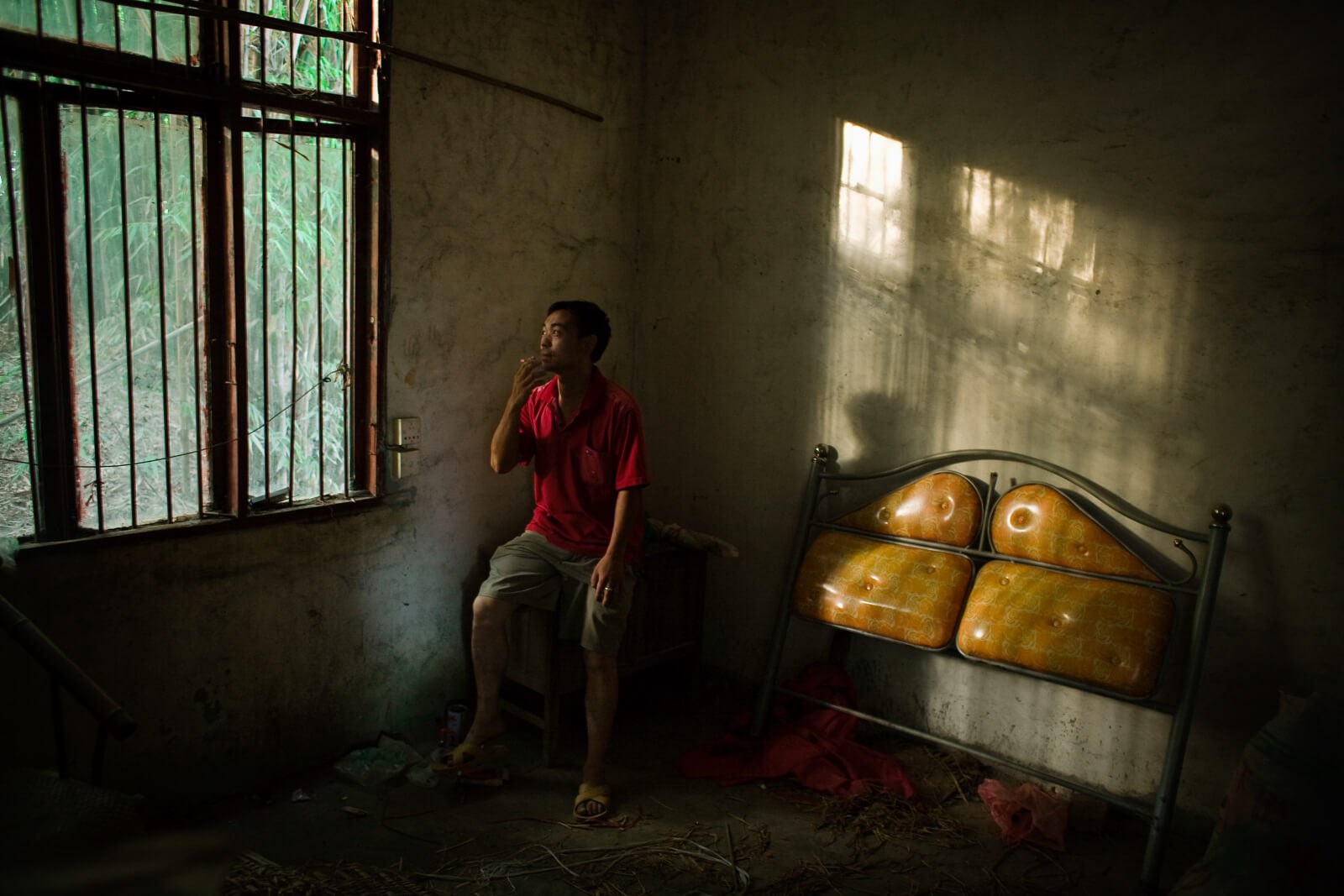
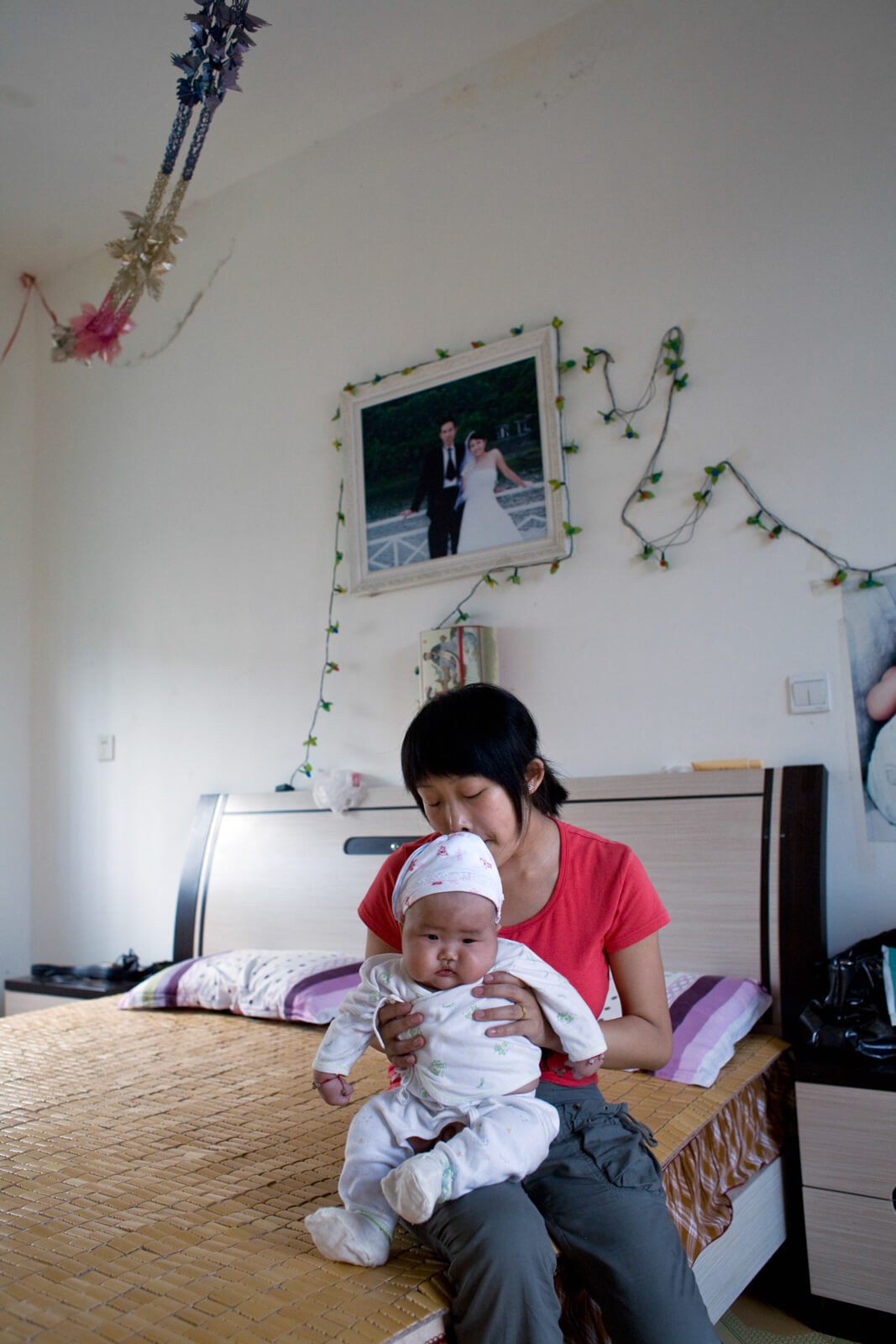
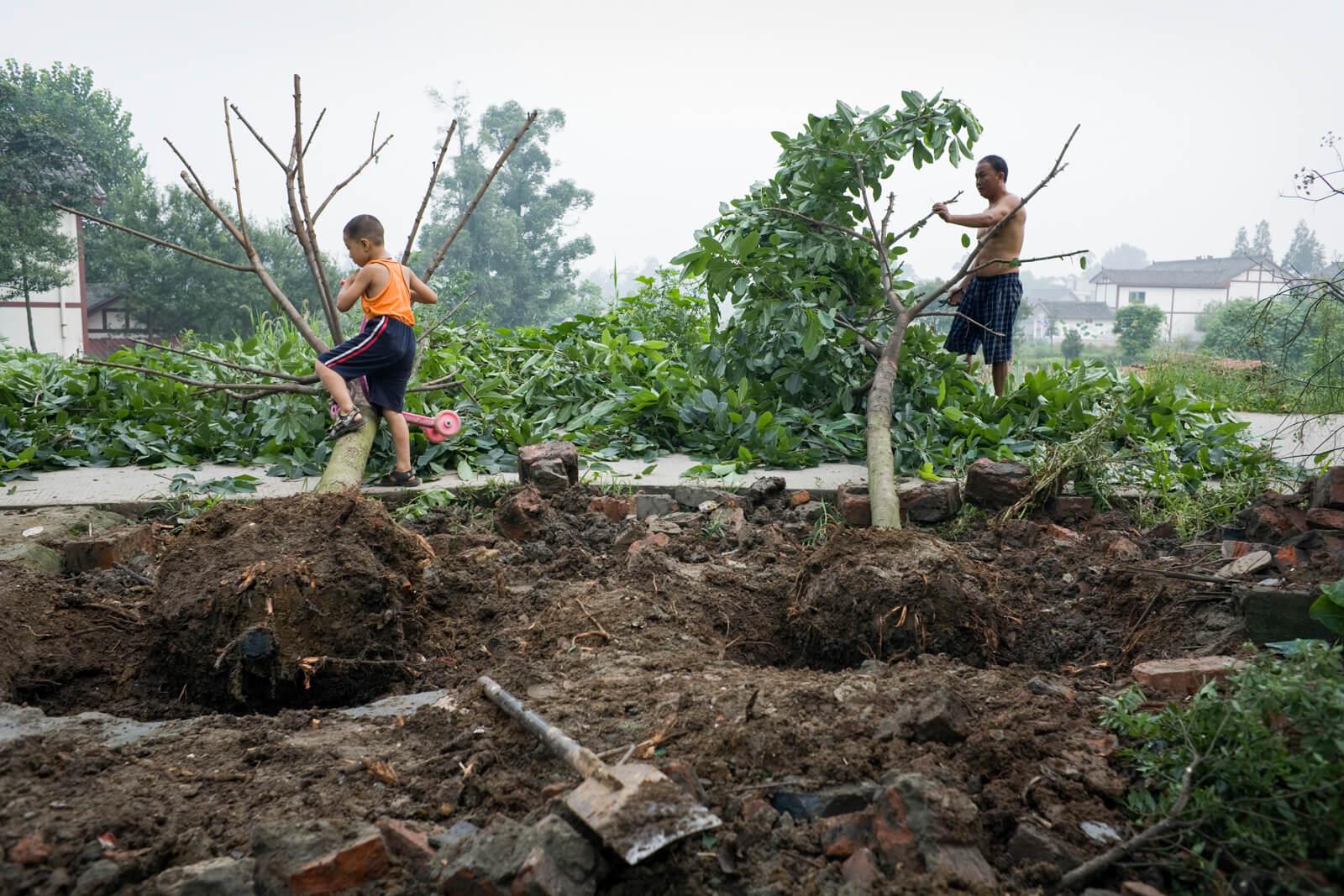
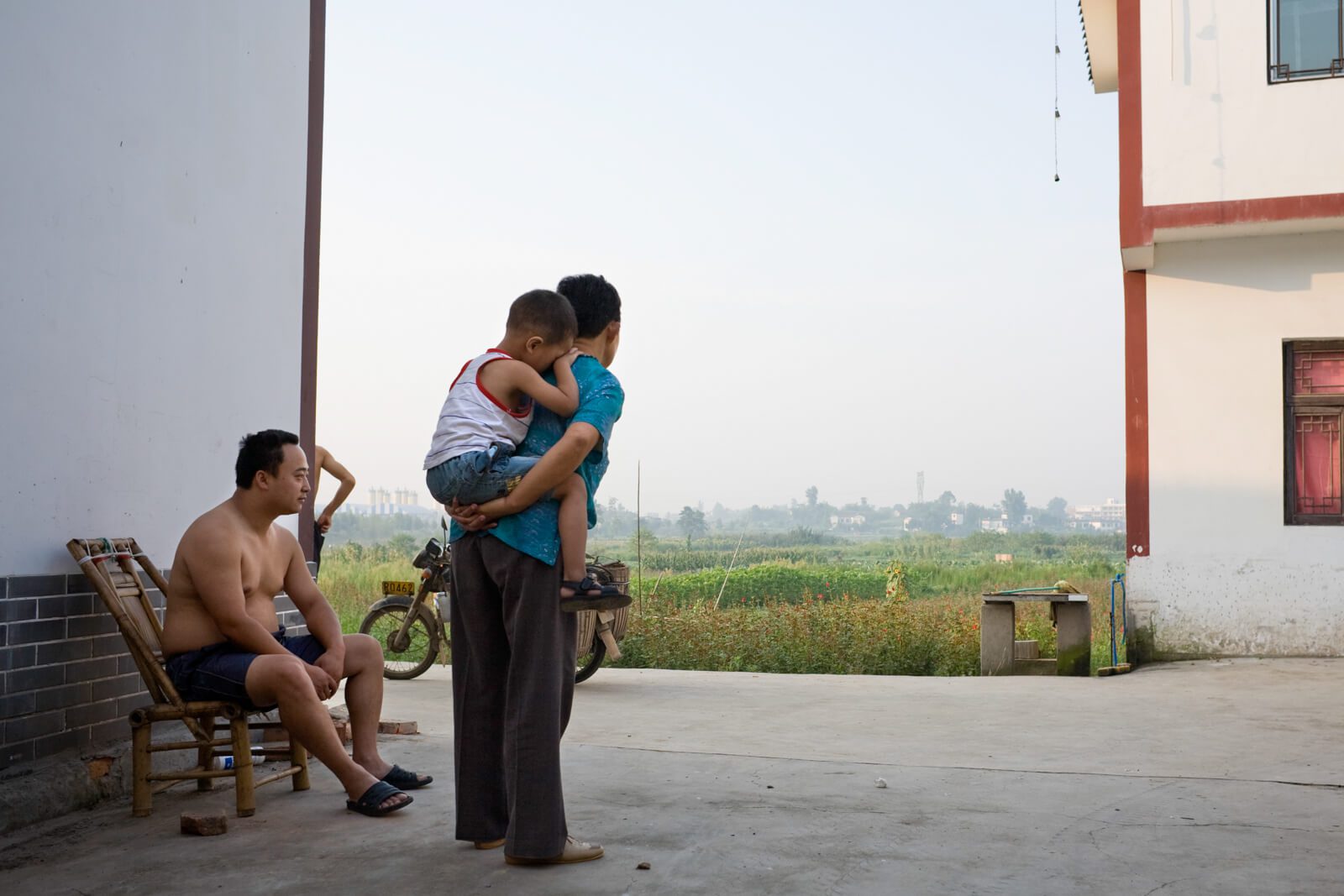
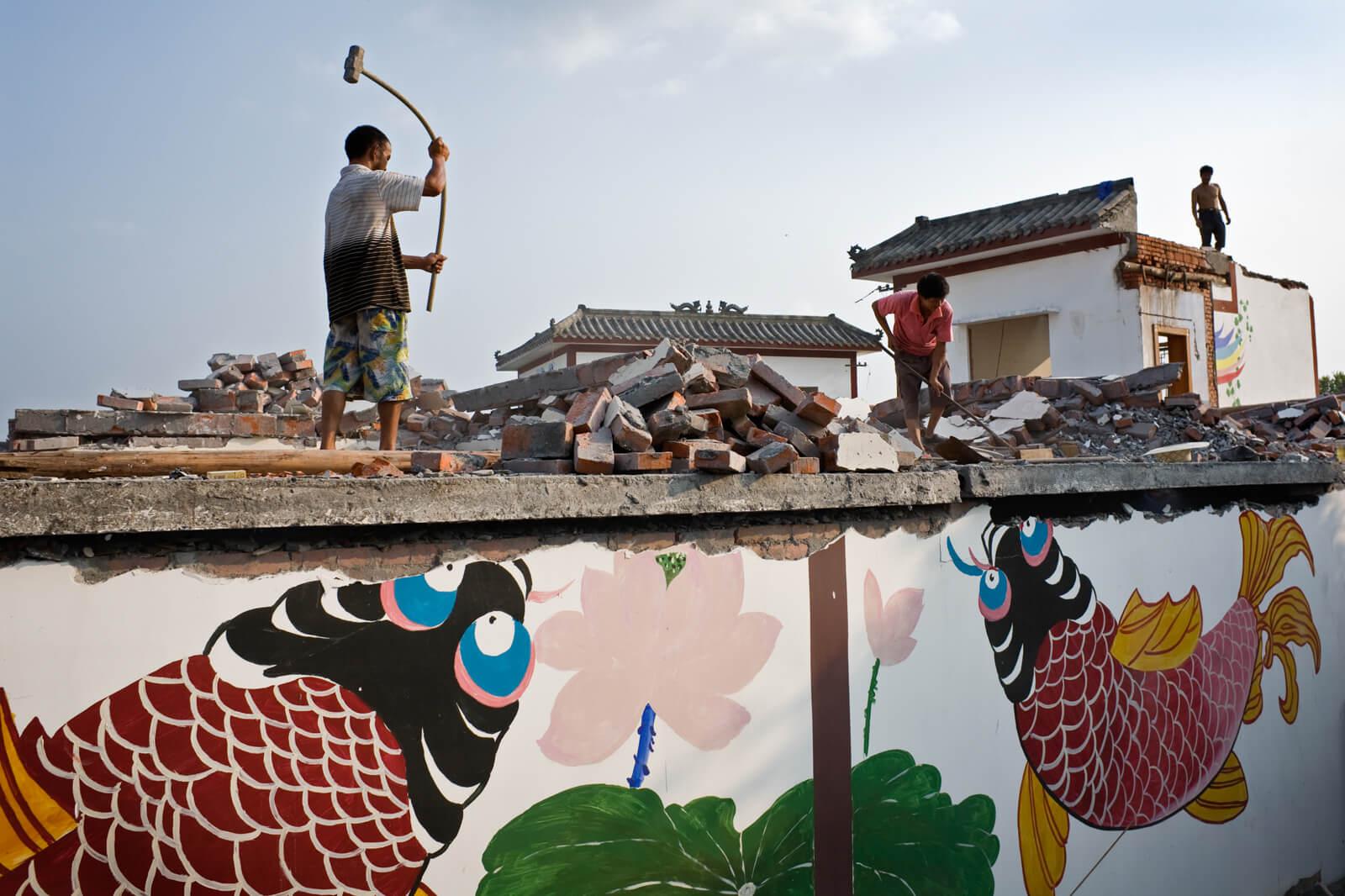
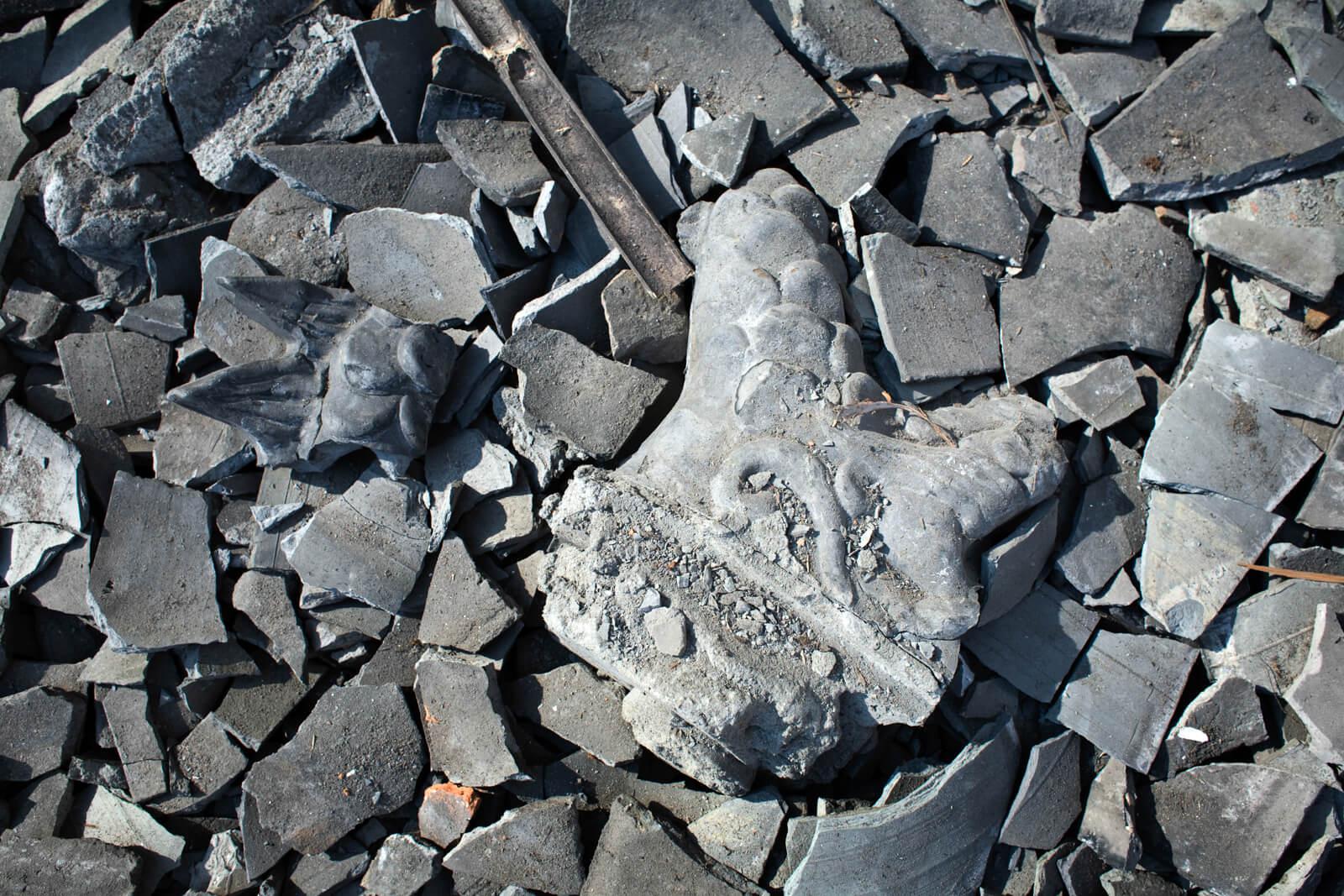
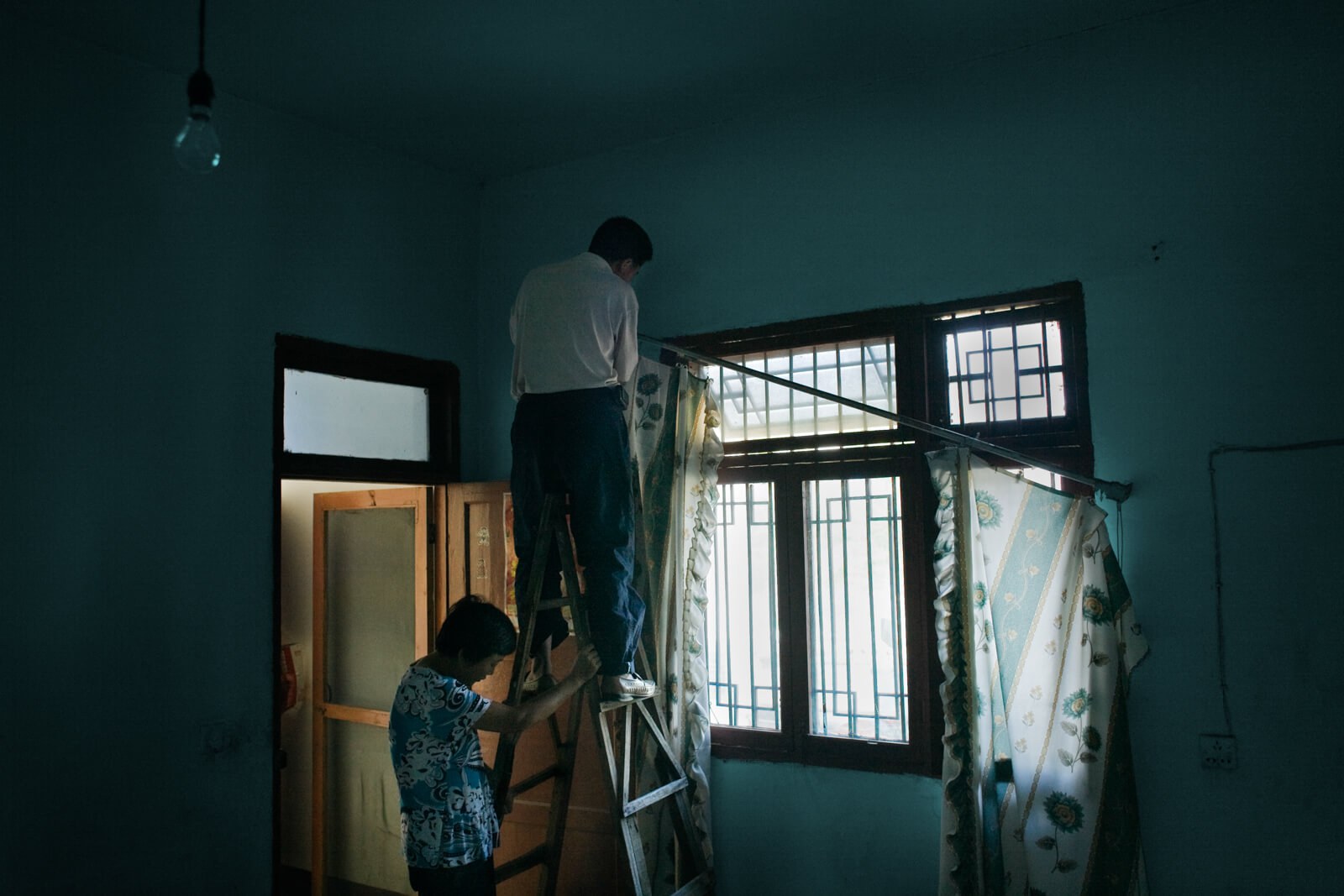
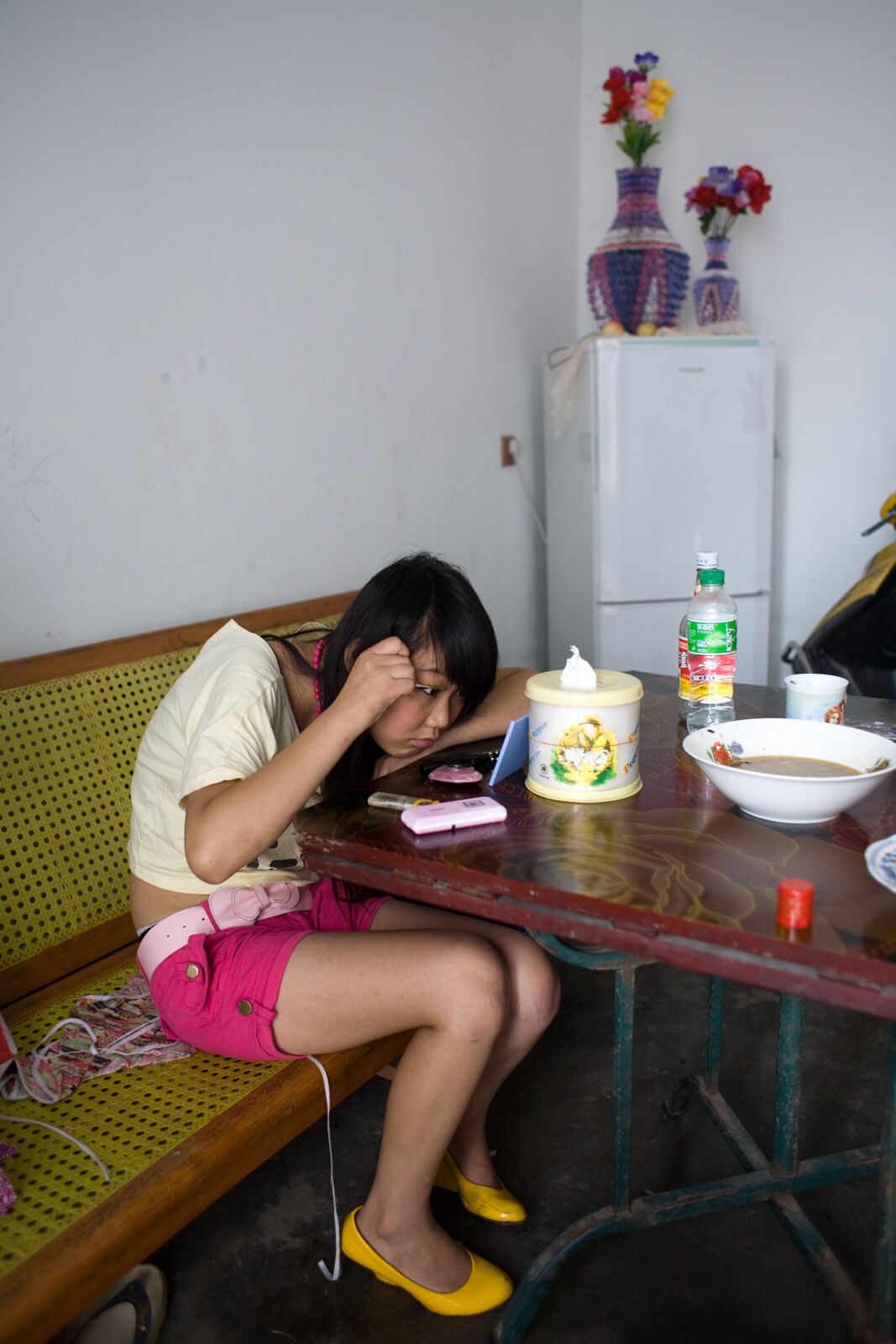
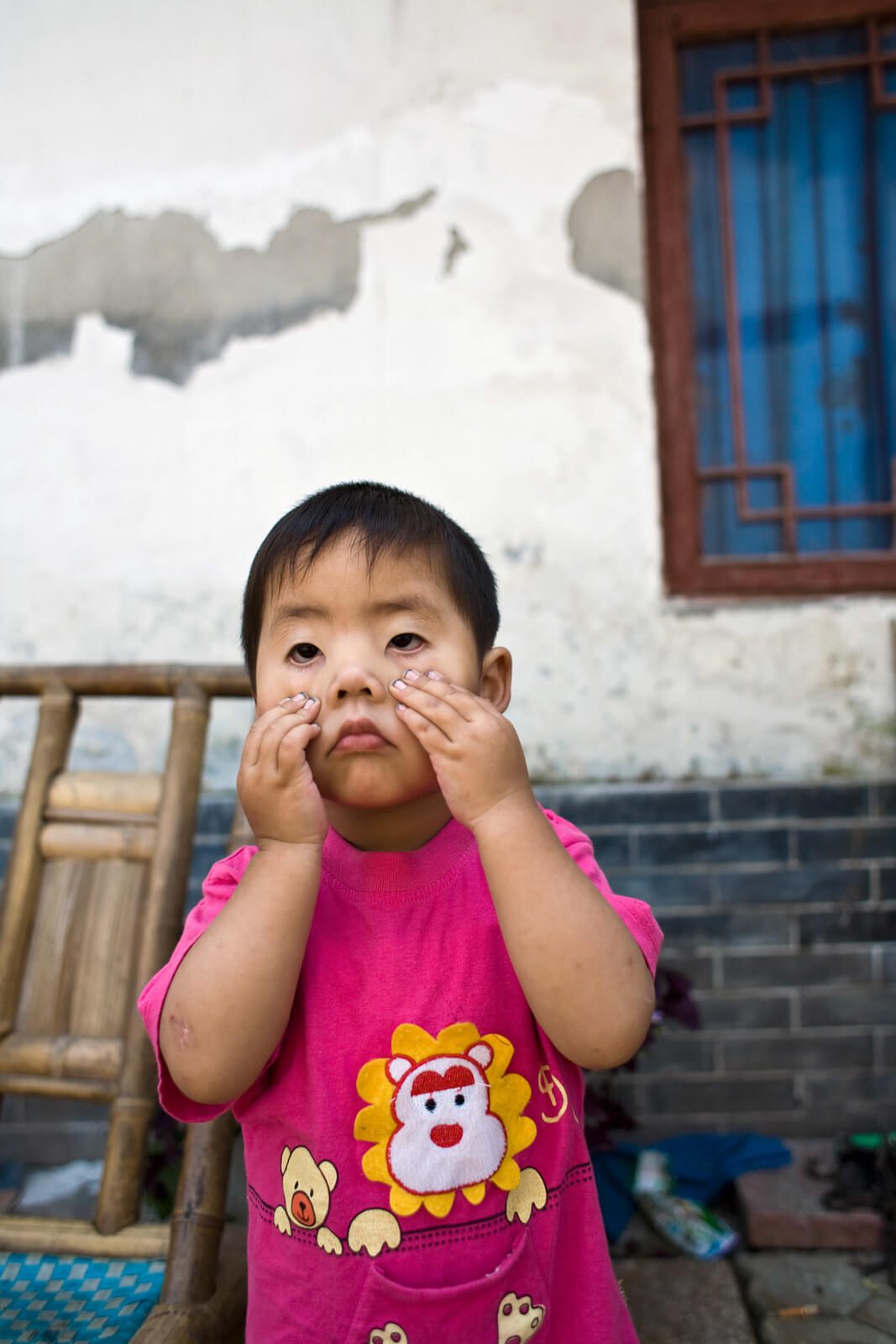
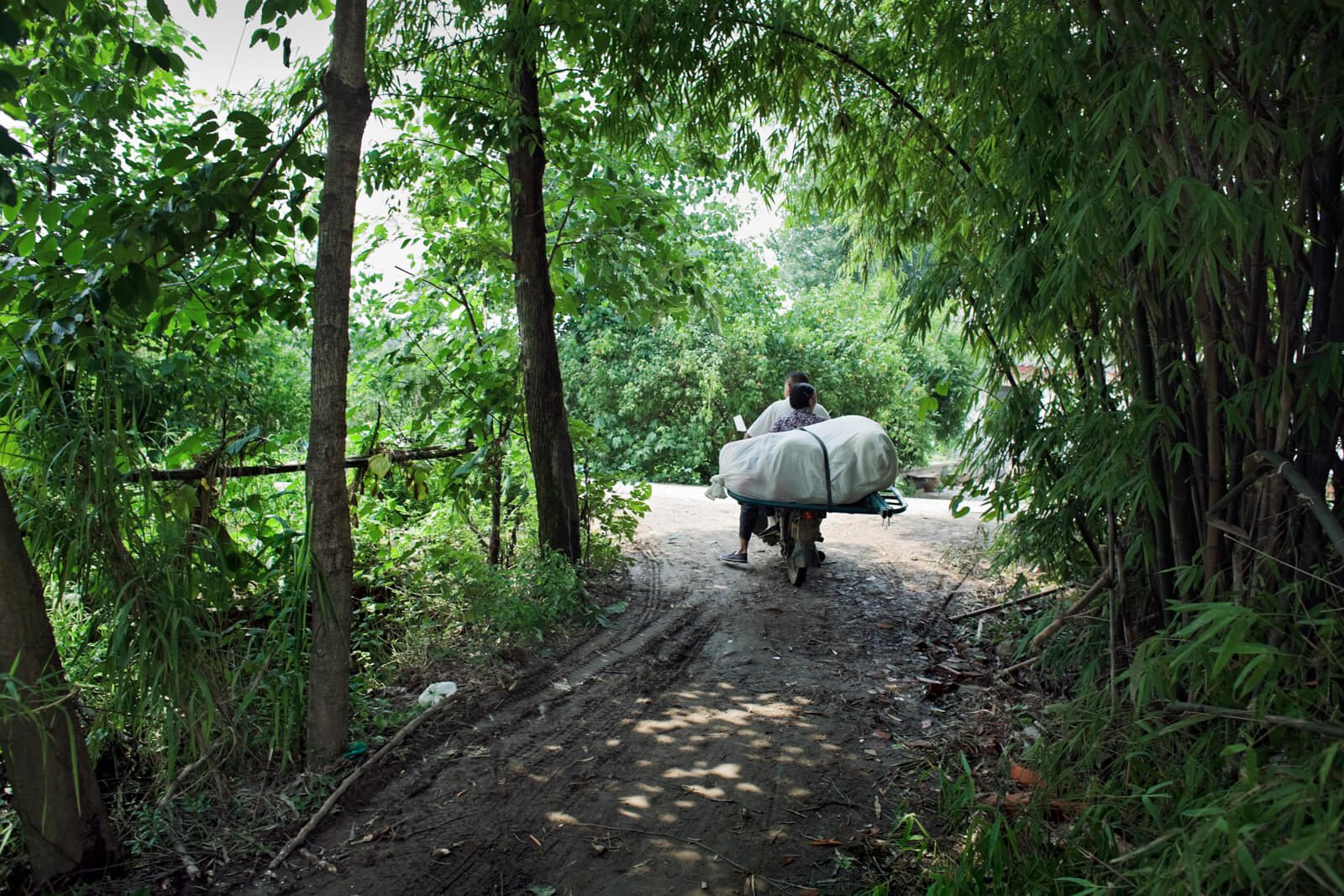
万福四队
10.000 Fortunes, Unit Four
I remember the day Boss Luo came to our little village and told us all that our houses were to be torn down in three short months. It was June 11th, 2008, a typically sweltering summer day with the bugs buzzing around my jasmine plants, but I had been living in Unit Four of 10,000 Fortunes Village long enough to know that something was different about today. The women of the village, normally a chattering bunch, were conspicuously silent from their traditional perch around the corner from my two-storey country home, where the plum trees hid them from view. I could sense their furtive whispering in the back of my neck, as if someone where watching me from the shadows. I got up and wandered over to see what was going on, but then a tiny, blue Chery QQ automobile forced me back into my little courtyard.
The flimsy little car jerked to a stop an inch from my makeshift bamboo clothesline and a boss stepped out and looked around. Boss Luo, one of the ladies breathed as he stepped out into the sunshine. A boss in rural China is hard to mistake for anything else then exactly what he is, and this particular boss fit the descirption to a T. Boss Luo was a portly guy with shiny black shoes and striped Burberry polo shirt. He had a thick head of black hair, a condescnding smile on his lips and dark brown cigarette stained skin. His driver, a lanky balding fellow, followed Boss Liu around nodding to himself and clutching a black leather bag with both hands.
I followed them to where the women were gathered in a small group waiting for Boss Luo with fear in their eyes. These were strong woman capable of carrying massive loads on their back; women who worked alongside the men in the rose fields and gardens, tilling earth and sweating undert the Sichuan sun. Women with powerful legs and gruff loud voices. Women that routinely invaded my courtyard, kitchen, home and bathroom to berate whatever it was I was doing. But here they were, cowering with strained smiles and nervous eyes. They rocked their babies like Tourettes patients and nodded at whatever Boss Liu said.
“We’re going to turn this place around, make it modern, you understand?
The women nodded in unison. The Boss swiveled on his heels and took in the small village.
“This is a great chance for all of you, you hear what I say? There will be a meeting next week, we’ll talk all about it there. We’ll tear it all down in August.
The women nodded as if he had mentioned the clear skies. His driver stood to the side and shuffled his papers. With one more encompassing glance at the village and the women, Boss Luo turned and strolled to his car.
“Allright then. Let’s go.”
And with that they slipped back into their little QQ and sped off down the one-land road that led through the village, forcing some vendor and his cabbage-laden motorcycle off to the side. The vendor gaped, then remembered to smile widely. He drove by us optimistically chanting the word “cabbage” in a long, drawn out nasally tone. I could still hear him as I turned to my neighbors to confirm whay I had just heard. But they were pre-occupied. Their homes were being ripped out from under them in three months and I could see shock spread across their faces in the noonday sun. If I had been able to think clearly in the heat and the confusion, I might have felt the pit in their bellies begin to form in mine as well.
Home
There is no way I can ever understand what it meant for Wang Mei Jie to leave the only home she’s ever known. I have moved from city to city my entire life, so one place is as good as another. Wang Mei Jie, on the other hand, was born and raised in Unit 4. As were her parents and their parents before them. She knew everyone and everyone knew her. She may have had her first kiss in the bamboo grove behind our houses. In the last days, before the wrecking balls came, I saw her beating her chest and holding back sobs. Her husband and daughter sat by her, reaching their hands out but not touching her. When they looked up at me, I turned away.
Wang Mei Jie was my next door neighbor and the first person to smile shyly at me when I moved my stuff in from the city in September of 2007. Her daughter Li Tian Tian was the first ambassador of the village to step across the green rows of garlic and spring onions and demand to know what in the hell I was doing here. In the country. Far away from all the other laowai that were gaining in numbers in and around the city of Chengdu. I told Tian Tian that I was here to finish a book and that I wanted to get away from the city. She sniffed at this and then went to inspect my furniture. I had none. I was so broke at the time that after paying three months rent on the place (USD200) I had nothing left for furniture or appliances. Or food for that matter. I had one rickety table, a space heater and a few dishes that I had cobbeled together from friends. She came out of my house looking as if she had just seen a midget circus and then went to see what I had in my kitchen. A few bowls, a bag of rice and some soy sauce.
“You are out of your mind,” she told me flat out and hopped back over the garlic to go tell her mother all about the dumb laowai next door who planned on sleeping on the floor and eating raw rice covered in soy sauce.
Her father, Li Guang Wen, overheard and came over to hand me a smoke. We smoked wordlessly for a minute, until he politely asked me about my origins and what I did for a living. I answered as best I could and returned the favor. He told me that his family had been living here for generations. Six to be exact. Months later, just before the bulldozers came, he would be the one to take out a sheet of paper and tell me the story of his Hakka ancestors and their long march from Fujian on the coast all the way here, to 10,000 Fortunes Village in Sichuan Province more than 300 years ago.
Later that night Wang Mei Jie sent Tian Tian to my place to invite me over for dinner. We had braised fish, sliced potatoes with red peppers and some roast duck with rice. We ate pretty much in silence. They asked if I were a teacher and I shrugged, saying I had taught before and they asked how much I was paying for the place. When I told them RMB10,000 (USD1200) for a year they looked down at their bowls. After dinner Li Guang Wen strolled over and handed me a smoke and we sat in silence as the sun set. The mosquitos rose up into the air, food for the bamboo grove bats, and the little village retired to the corner store for gossip and cards. For the first time in many years, I saw stars shining above Chengdu.
The winter of 2007 was very harsh. The snowstorm that ravaged southern China left trains stranded during the all-important Spring Festival run, but closer to home, it almost froze Boogie and me to death. Boogie Brown was a musician with little money and a project to finish, so I seemed natural for him to join my in the countryside for solitude and inspiration. We spent a lot of time huddled by the space heater wrapped in Tibetan cloaks we had bought up in Kham years before, measuring the distance between our lips and the point where our breath disappeared. We lived off of instant coffee, ramen noodles and the occasional meal scrounged up from scraps. There was nothing noble, adventurous or romantic about it. Being broke in China is pretty much rock bottom and we knew it.
Farmhouses in China are built of concrete and plaster with no insulation and not a single straight line in the whole building. The windowpanes are thin and usually rattle in their ill-fitting frames. It’s impossible to keep the wind out and clothes never go dry. Every night I had to take a couple trips down to the courtyard from our second floor squat to pick up the bamboo clothesline, re-align the tripods of wood, pile on more bricks, and swipe dirt and garbage off of the clothes that had fallen in the gusts. Our neighbors did not fare much better. The typical country family lives in a concrete shell with just a few pieces of furniture, bundled up inside watching television and sipping on hot water. Wang Mei Jie threw her windows open and washed her clothes in a bucket of soapy water outside. Her hands were red and raw whenever I saw them that winter, but she seemed immune to the gloom that spread over Boogie and me, as did everyone else in Unit 4.
The difference is knowledge of choice. I had experienced central heating, rugs on the floor and walking barefoot to the bathroom in the winter, so every gust of wind reminded me of my failings. Every time the Nescafe ran out I grew a little more depressed and little less willing to return home to the country after a day of frutiless hustling in the city. Salvation rrived in the form of a friend from the US who came to visit me for a month. When he arrived, I held out my hands like a long-suffering addict, oblivious to my my own shame and my friend’s shock at having to bail me out. I piggy-backed on the money he made fishing in Alaska that summer and took a trip to sunny Yunnan. Boogie met a girl and moved in with her. Anything to get away from the dismal wet, cold of the Sichuan winter.
When I came back in March, just as spring was arriving, I found an empty house with the doors swinging open. I walked inside and there was dirt and garbage in the foyer and spray painted scrawling up the staircase and into the second floor living area. My bedroom had the word for “fortune” sprayed onto it and Boogie’s had “I love you” painted on his. Somebody had pealed a peach and placed the peelings in a chalice I bought in Xinjiang in 2003, then placed the chalice in the bottom drawer of a Cultural Revolution-era closet I dug up at a local flea market. These little messages didn’t resonate as much as did the intrusion into our home and the realization that we were now the “crazy cat lady” of the neighborhood, the target of all the little boys and girls of the village. I was furious and hurt hat my neighbors would do this to my home - for who else could it have been? - and for days afterwards I wouldn’t speak to anyone.
The next month was quiet and tense for reasons quite obvious: I didn’t trust my neighbors after their graffiti run through my house and they didn’t know what to think of the laowai who came home at all hours of the night and sometimes not at all. Lhasa was burning and Kham, an autonomous prefecture in western Sichuan, was on lock-down. A dozen police vans gaurded the crossroads in the Tibetan district in Chengdu and the government-controlled media was letting everyone know that “foreign splittist elements” were trying to pry the Great Chinese Family apart. It was a tense time to be a foreigner in general, and even more so for me, a laowai in the middle of a country village with no friends, no money and no idea what the people of Unit 4 said about me during the cool spring nights down at the corner store.
But there were other reasons for the tense atmosphere that were not quite as apparent at the time. Only after the fact, after the quake that shook the region and changed everything, did we finally understand what had made us so jittery during the month of April. Scientists posit that subliminal foreshocks deep under the crust cause birds and animals - and particularly senstive humans - to act out, or flee. Did the dogs of the village bark more than usual during the month of April? Were the circling bats and their six-legged prey more frantic as the plates beneath them rubbed together and prepared to burst?
Just days before the quake, probably when the foreshocks had reached their climax, the little gang of vandals that had assaulted my home while I was away stole a can of Krylon from my foyer and sprayed “Ma Shan is a Dork!” in huge blue letters right across the side of my house. I had just taken a short walk to the store to grab a pack of Hong He cigarettes and some water, and when I returned the paint was still dripping. It was broad daylight and Wang Mei Jie was in her courtyard hanging up clothes. I lost my mind, whirled on her and her daughter Tian Tian and let loose with all of the invective I could muster.
I took a bottle of black ink and broke it on their house. I yelled at them and told them they knew who was doing this to me, but they wouldn’t tell. Tian Tian cried. Her mother defended her, searing my mouth shut me with an eyeball judgment that reminded me of my own mother, and I shrunk away back to my home. Minutes later I came out with a bucket of whitwash and for the next two days, lathered paint over the offending black blotches. I never did get all of the black off of their house. We all went about our days in silence until the quake came and threw us all back together again.
The very day before the quake I wrote this in my blog:
“A great many strange things have happened in the past few days ... perhaps not as many as may be transmitted by the feeling that accompanies one or two strange happenings, but nonetheless ... something is happening.”
What happened was the most unifying catastrophe since the Japanese invasion. I walked the streets of Chengdu that day dazed and everyone stopped to talk to me and I stopped to chat with everyone else. Never in all of my eight years in Sichuan did I feel more at home then during those minutes, hours, and weeks after the quake tore a hole in the province and buried 80,000 people under rubble and metal and dust.
My home out in 10,000 Fortunes became the fortress for many of my friends in the city. The village lies 20km southeast of the city and the epicenter of the quake was 150 to the northwest, so everyone figured that in the weeks ahead, my house was the place to weather the daily aftershocks that rattled our ligaments and neurons, rendering us loopy and jumpy.
All was forgiven between me and my neighbors now – even if Tian Tian still gave me the stink-eye – and they could not contain their curiosity. Now, instead of one lone laowai with a temper problem, there were ten to twelve of them at a time. Barbecuing. Playing music. Joking and running around with the village kids. The women spilled cautiously out of their homes and came to inspect our barbecuing technique, then politely, silently took over for us. The whole village hung out late into the night. We traded “where were you” stories with the gnarled rose farmers and iron mongers of the village and chain smoked till our throats went dry. The kids who were most likely responsible for my house resembling a heroin hideout went back and forth to the corner store for beer and smokes. They sat around us and listened, played in my second floor squat, ate our barbecue ...
And finally, during those few weeks of bonding before the whole village came tumbling down, I learned the whole story of Unit 4.
Progress
Mornings in Unit 4 are the realm of God. Music drifts through a loudspeaker across the misted land, an old man’s plaintive voice, plucked strings and a reedy flute. I have always wanted to follow the music over to its source, along the little stream that leads down to the main road, but I never do. I am rooted to the spot by the glory of the rising sun, by the mist taking its leave from small white blossoms, by my neighbors as they trudge to the fields and rev up their motorcycles. Roosters and dogs call to each other and the first of the produce tractors comes rumbling down the path, hawking potatoes, greens and oranges. I take another circuit of my little courtyard and sniff the jasmine blossoms; finger a small leaf that wasn’t there yesterday.
Daily life here slowly drives away the magic of the morning. The motorcycles and three-wheel trucks collecting garbage and recyclables roll through the village and drown out the music. The mist still clings to everything like spider’s silk, but in a manner of minutes the sun will melt it all away. Li Dong Mei, my stocky talkative neighbor, moves backwards past my courtyard, sweeping the walkway like she does every morning.
Morning, I say
Morning, she replies. “Have you eaten yet?”
“No just some coffee. Have you eaten?”
“Not yet.”
“You sweep every day, don’t you,” I say, merely to have something to say.
“Only ten more days, then no more sweeping,” she mournfully replies. “Only ten more then never again …”
That statement tossed me straight into a reverie. I sat back and imagined the first of her people to arrive here, more than 400 years ago, part of a long, struggling train of professional nomads. A Trail of Hope, as it were, from the far eastern seaboard across the rivers and lakes of central China, over the hills and mountains that separate Sichuan from the rest of the country, into the Land of Abundance, where rice grows year-round and where the fruits of the world find fertile soil. Her people are the Hakka, known across the nation as the Guest People. Part-nomad, part-tinker farmer.
A few weeks earlier, Li Guang Wen had invited me over for an early dinner with moonshine and smokes. After a few drinks, he stood up and pulled a sheet of paper down from the top of his refrigerater. It was a copy of a handwritten history of the Li and Lin clans, who came from Fujian 400 years ago to settle in the Chengdu Basin. .
Back then, Sichuan was a land of strife, reeling from several destructive and bloody conflicts between local warlords, Imperial generals and ethnic minorities down from the mountains. Tibetans and Yi fought off Han incursions into their mountain strongholds; Han fought Han for control of the Upper Yangtze and Min River valleys; nodes of gangsterdom ruled where the Emperor could not reach. The Manchu rulers in Beijing had to exert control with more than just the occasional army, so they sent in the Hakka with their plows and oxen to pacifate the region. Emperor Kangxi offered each man eight teals of silver, each woman six taels and each child four taels of silver to make the 2000 mile trek to Sichuan and repopulate this uncontrollable sector of Greater China. The Hakka answered in droves.
Thousands left their homes in Guangdong and Fujian and made their way west for a new life. They settled in and around Chengdu, in towns like Luodai, and began to cultivate land which had lain fallow for decades - due to war, lack of tools and depopulation. The plan was a great success. The Hakka farmers and merchants enriched the land, built great towns and guildhalls, and established trade networks that pulled the west in closer to the developed eastern province.
The Hakka, said Li Guang Wen, civilized Sichuan. We toasted on that note.
Like other gypsy-folk around the world, the Hakka developed a strong clan and family structure to preserve their language and customs. In Luodai, elegant guildhalls built by the first wealthy Hakka families in Sichuan 200 hundred years ago are intact, but now serve as tourist attractions rather than functional trade hubs. Li Guang Cheng, my neighbor’s older brother, explained that a lot of the Hakka culture has been forgotten by the younger generations, not necessarily because they don’t care, but because of progress. He still speaks the Hakka dialect of Cantonese that his ancestors spoke, but by now it’s a mish-mash of old Hakka, strange Cantonese sounds and a large, oozing dollop of country Sichuanese. And he is one of the last, Li Guang Wen speaks only a little Hakka and his daughter Tian Tian can’t speak a word and is not expected to. Those days are over for the Li Clan of 10,000 Fortunes.
We started losing our language during the 1950s and 60s, said Li Guang Cheng, after the Liberation. When the Communists marched through Sichuan on the Long March and continued several years later all the way to Beijing, they brought some things with them, and they tore other things down. For much of the second half of the 20th century, all that was traditional and old was put to the torch or the hammer by the Mao’s raving cadres. Politics was the religion of the land and all culture and society was a derivitive of Mao’s politics - or it was destroyed. What survived is pinned to Li Guang Wen’s refrigerator and he looks at it absently while we drink the last of his moonshine, under the moon, just as his wife and daughter get home.
Salt of the Earth
The people of this village still remember 1978 very clearly. That was the year Deng Xiao Ping, a Hakka himself, calmed the seething masses of the post-Cultural Revolution era with land distribution. But it was a loan - not a gift - the terms of which are held hostage by each Five-Year Plan. Now, after six such plans, the terms have changed irrevocably. Local governments are taking the land back and selling it to private developers. Peasants have no say in the matter. They can either agree to the compensation offered by the government, or be thrown off the land without compensation. There are more than enough instances of peasants agreeing to the terms, yet still not reveiving the compensation they were promised. There is nothing the villagers of Unit 4 can do except hope and wait.
Zhou Su Zhen, 80, remembers when Chairman Mao made the land State property during the Great Leap Forward in the 1950s, just a few years after he granted the peasants land for their support in overthrowing the Nationalists and throwing out the Japanese. She doesn’t question much of anything these days, least of all Mao’s many reversals. She gives an approving nod of her head as she tells me about the 1950s, not because she agrees, but because it has become second-nature for her to nod in such a way. When I ask her where she will go after her home is torn down, she gets a confused look in her eyes that perfectly mirrors the looks in the eyes of the women who first heard Boss Luo’s declaration back in June, that the whole village would fall by August.
If the history of Zhou Su Zhen’s control over her own destiny is viewed as separate events along an 80-year timeline, then it seems sporadic, arbitrary, uncontrollable. Hence her automatic nod. But for all of China’s starts and stops, progress has been a constant. The confusion over what to do with China’s land and the peasants that tilled it led to mass starvation in the 1950s, but that was actually just another development - as misguided as it was - in the massive urbanization campaign – official and unofficial -- that has completely transformed China in the 20th century. China is a power now because the cities are swollen with peasants-turned-laborer, the backbone of the country’s industrialization.
In 1978 about 80% of China’s populations lived in rural areas. By 1990 it was 74%. It was 64% in 2001 and 56% in 2006. In the past, ownership of the land went from the State to the people and back, but the basic conditions never actually changed. The true owner was always the Boss, whomever that was at the time, and the peasants always had crops that needed tending and work that needed doing.
But this land grab is different. This time it’s for good. Rich Chinese hate the crowded, filthy cities and long to live like the mandarins of old in peaceful country estates. China’s modernization drive no longer depends on the Maoist belief that a nation “must be able to feed itself.” Today’s Communist Party realizes the fate of the nation lies in building and sustaining consumer demand for goods and services. China needs megacities, not farms.
The peasants have to go.
Deng Xiao Ping’s master plan in 1978 was to urbanize China and remove governments from the destructive cycles of the past, in which peasants were appeased or oppressed depending on the political climate. The solution is to remove peasants altogether and replace them with laborers. The migrant population that clogs China’s railways each Spring Festival as they leave their worksites to go back home will slowly diminish as the work sites become home. The rich landowners get their land back. The governments get paid. The peasants remain, as ever, the burdened backbone.
This final land grab is called Fu Gai Nong Cun, Change and Enrich the Countryside. Unit 4 hears the slogans blared from an official car that crusies through the village every day. If they missed the announcement, they can walk on over to Li Guang Cheng’s corner store and read about it on the Unit bulletin board.
Boss Luo promised the villagers that they will only have to move elsewhere for two years, then they will be moved into apartments - 30 square meters per person. In the interim, the government will pay 600RMB per month to each family as well as a lump sum based on the value of the house.
Zhou Su Zhen’s head must be spinning. When she was little, all the pretty girls bound their feet. As she bent over day after day and pulled weeds and food from the soil, China went through the convulsions of a lunatic. Every so often she would rise up and steady her back with one hand, ankle deep in mud, and listen as the local Party Secretary rolled through Unit 4 and blared the most recent political campaign through a bullhorn. As the years went by, the meetings with red-badged cadres became increasingly arcane and indecipherable. Confused and trusting, she nodded her head approvingly.
“Our Secretary Luo would never lie to us,” she declared to the group of worried younger women that gathered in the wake of Boss Luo’s announcemen. “The government will take care of us.”
Nobody looked convinced. Over the years countless horror stories involving greedy developers, duplicitous politicians and desperate peasants have made the villagers nervous. Will they get compensated fairly? Will the government help them find new homes for the two-year interim period? Will there really be apartments waiting for them when this is all finished? Zhou’s nephew, Li Fa Fu, was doubtful.
“Its hard to say what they will do with this land,’ he said. “This is good land and it is in a prime location. I can’t imagine that they would let us back on here after they get us off. Especially if they can make millions doing something else. The government doesn’t want farmers anymore. We’ll see what they say at the meeting.”
The Big Meeting
The big meeting took place at the village head’s house, Deng Wei Xin, on June 15th at 10am. Everyone seemed excited, almost playful, as we headed across the fields to the big house. I had butterflies in my tummy, like those times before big games when I was a kid. I was expecting a showdown between the peasants and the politician-developer bad guys over the future of Unit 4. I might even keep my home, I thought to myself, as I skipped across the fields.
Boss Luo, his lackey Mr. Zhou and six other officials sat a long table under a grove of plum trees. The villagers gathered in a smei-circle facing the table. Children scampered around and picked plums off of the ground, wiped them off and took big, juicy bites. The men ringed the back of the gathering smoking and chatting away, occasionally shaking a small tree and enjoying the plums that fell. After a few minutes, the lanky lackey Mr. Zhou stood up and gave the opening speech:.
“The municipal government has decided to modernize the facilities of all villages in accordance with the central government’s plans to develop the countryside and enrich the farmers. The re-development and construction phase will begin in August and will last two years. In these two years, all residents of 10,000 Fortunes will be compensated with a monthly stipend. Furthermore, the municipal government has ordered the developers to build a new, modern apartment complex to house all of the villagers of 10,000 Fortunes. Each resident will be given 30m2 per head, which for most families equals 90m2, to compensate for the loss of their homes and fields. This can be allocated according to your wishes. Furthermore, the government will pay each resident a lump sum based on the amount of land owned, the extent of development of each parcel, the type of cultivation currently on each parcel and also the size of each dwelling.”
Murmurs rolled through the crowd and a few of the women yelled out, demanding to know the details of the payment process. Mr. Li, Vice Secretary of Huayang District, the next level of government up, stood to address the crowd. Mr. Li was a young man with an intelligent expression and close-cropped hair. Of all the officials present, he was the only one not chain-smoking.
“Good afternoon comrades, I am glad all of you are here for this important meeting and I am happy to be here as well. This is a very important day for Three God’s Village as well as 10,000 Fortunes. The government is modernizing and developing this area and soon this will be a bustling center of commerce with schools and playgrounds for your children and business opportunities for your families. The city of Chengdu is growing and soon not only will the Third Ring Road be developed, but the Fourth Ring will surely be modernized as well in the coming years. Our China is growing rich and the government is bringing these riches to the countryside as is dictated in the five-year plan recently agreed upon in Beijing. All of you will receive fair compensation for your homes and land and you will be able to live here forever in nice, modern homes provided to you by the government in return for your sacrifice. This area will become even more beautiful as modern development techniques are utilized to keep the water clean, to protect the fields and to provide electricity and even the Internet for the entire area At the end of his speech, Mr. Li gave the villagers a chance to ask questions and speak their piece. No one moved at first, then one lady rose up and started talking, her voice shook and her face reddened as she started gaining momentum:
“I have lived here all my life. My mother and father are old and sick and live with me too. My husband is a laborer in the city and I work the rose fields and sell my flowers. We have no money. How are you going to compensate me for losing my home? What am I supposed to do for two years while I wait for you to finish this building? How do I even know that I will have a place here in two years? I know you will change things mid-through. How are we supposed to live in the city with those high rents and no skills? I am a farmer. I want to know right now how much money I can get for my fields and how much money you are going to pay me each month and how are you going to guarantee that I receive my money each month. I can’t sign away my life to you. We know you officials and developers don’t care about us …”
The villagers chimed in with similar stories and began crowding the desk. Mr. Li nodded and asked everyone to calm down.
“There are clear laws and regulations that govern these types of transactions. The government will abide by all laws and regulations and pay each and every person according to those laws. There is no way the government will break the law. It is all set down in a contract that each villager will receive. You can visit Secretary Luo or Vice Secretary Zhou anytime and they are required by law to give you all the information you need. In addition, there will be a document in public view both here at the village head office and in Unit 4 as well. This document will have the information of every home that has been sold, for how much, how much the land sold for and how these numbers will be calculated. There will be no secret negotiations in this transaction.”
As Mr. Li’s answer went on, the villagers started getting restless and repeatedly called for details concerning the amount of money each family will receive, the amount of monthly compensation and how long it will take to get paid. Then one of my neighbors, Guo Xiu Lan, pointed at me and yelled out,
“Let the laowai speak! Let the laowai speak!”
I had told my neighbors before that I would speak on their behalf and they all stepped away from me and started clapping. All of the villagers as I cleared my throat and began.
“Hi, my name is Ma Shan. Most of you know me already, but for those who don’t, I am the only laowai who lives out here and I have been here for about 10 months. I moved out here because this area is beautiful and peaceful. I love living here. I have come to know my neighbors and you have all taken me in as one of your own and treated me very well. When we heard that the village was going to be torn down it was a great shock and also a big disappointment. All over China places like this are being torn down to create apartment blocks and to make way for the city. The real China is disappearing. There is no place for anyone to go and see the beauty of this country anymore because the cities just keep growing. Is it really necessary to tear this place down and make another city? I must tell you, even though I am now the only foreigner here, many of my friends have moved across the way into Xing Fu Mei Lin and they love it there as well. Many of my artist and musician friends are moving out here. There is great potential for tourism here if we can just maintain what we have and keep it pristine and natural. If you develop this place, you might regret it in a few years when this becomes just another dirty, crowded city suburb. My neighbors love this place and this is their home. I urge the government to consider maintaining 10,000 Fortunes as it is and focusing on tourism and bed and breakfast revenue, focus on the artists that want to live out here. I hope you can keep the environment here as it is … “
I faltered and went silent. I realzed halfway through that my arguments were senseless and falling on deaf ears. Not even the peasants entertained any thoughts of “keeping things natural” or any hopes of making money with a bed and breakfast business. Progress was a foregone conclusion and the real crux of the argument was not whether or not to proceed, but how much money was going to be paid out to the villagers and when the payment would start. The villagers clapped and cheered, but I knew in my heart that I was a clown.
Mr. Li got up to answer.
“We know that Westerners enjoy the rural beauty of China. That is why we are keeping all of this area exactly how it is. The government has promised that Three God’s Village and 10,000 Fortunes will always be available to our foreign friends. We are committed to a Green City and to green development. The apartment building will take up only a little bit of space and it is there to house the villagers. Their homes will be torn down to make way for a large park and beautiful villas that will be rented out and sold to foreign friends like this laowai (Ma Shan!, yelled one of the women) and also to the artist community. We welcome you to return to Flower Town in two years, Mr. Ma Shan, and I am sure you will love what we have done with the place.”
As soon as he finished, the loud arguing started back up between the villagers and the officials over the terms of payment. At first, Mr. Li waved them down and tried to continue, but the din grew so loud that all of the officials eventually had to stand up and yell the crowd down. A phalanx of women crowded the table and slammed their hands down, shrieking at the officials to provide details.
Eventually, Boss Luo waded into the middle of the fracas and shouted his villagers into submission. He then took over from Mr. Li and delivered a succinct speech, waving a sheaf of papers as he shouted:
“No one here is going to walk away without their proper amount of cash, don’t worry about a thing. But until every last one of you signs this document here, releasing your home to the developers and confirming that you accept the government’s generous offer, ain’t no one getting a dime!”
“We’ve been through this before,” mumbled one old peasant as he handed me a cigarette on the walk back to Unit 4. “They talk big and promise everything, but a year from now the money will be gone. Then what are we supposed to do, huh?
I shrugged, lit his smoke for him and walked back home through the rose fields.
Epilogue
I wish I could tell you that the village banded together and marched in defiance toward the bigwigs to demand justice and compensation, but that is not what happened. We just lived out the last days. As July rolled in, I learned that I had a job working for a security firm in Beijing during the Olympics. It was a job I had been trying to get for months and I was happy and relieved to finally have some gainful employment. If I took the job, I would miss the bitter end of 10,000 Fortunes, when the bulldozers would finally come and destroy the houses of the Li Clan. If I didn’t take the job, I would go hungry and miss the Olympics. There was no hestitation at all. The meeting with the bosses and the weeks that followed filled me with the same resignation that permeated Unit 4 since that first day back in June, when Boss Luo had backed into my courtyard and swept the future away with a single wave of his hand.
One by one the familes signed their homes away and took the cash they could and moved away. They left in clumps. One Li branch left for LuoJia Alley, the outskirts of a town that itself was the outskirts of town. The space between Unit 4 and Luojia Alley was and still is a jumble of fields, stacks of bricks and crumbling ruins. Somebody strings a clothesline betwen a plastic pole and a pile of rubble. An umbrella shield chair in a field of broken stone from the sun, a tea cup glints nearby. Other families went out to Luodai, the old Hakka headquarters, where they started business catering to the tourists from Chengdu. Wang Mei Jie, Li Guang Wen and their daughter Li Tian Tian left for Longcuan, a larger town farther south where Wang Mei Jie had a sister with extra rooms. I went to Beijing.
I came back after the Olympics and went to see my old home, to see what had happened. I had moved most of my things to a new apartment in the city before leaving for Beijing, so going back for me was pure curiosity. I arrived at my old home late one night, in a cab, and the headlights illuminated a gutted building and piles of wood. I saw the drawers of my old closet and a mattress I had left behind. The village dark world of shadows against shadows. As the car pulled into the courtyard, I saw two men in flashlights come stumbling out of my old house. One had bits of rope and string in his hands, the other was carrying two baskets of broken metal and wood. I saw one of my flip-flops in his basket. I thought of the graverobbers from A Christmas Carol, grim and callous. I looked around at the destruction the looters of the night had wrought in my courtyard and my chest grew constricted and cold. The windows were Wang Jie Mei’s gouged out eyes; the doors tattered frames half stripped of nails swinging in the wind.
They had ripped apart Li Fa Fu’s belly and found nothing there but some copper wire. As I turned to go, I saw six glowing coals come cautiously out of the brush. My cats, two mamas and a kitten padded up to me and wrapped themselves around my leg. I took the kitten and let the mamas return to the bamboo groves and rose fields behind my house. I am not sure what happened to the mamas, but the kitten grew into a handsome devil and then ran off one day, into the wilds of Chengdu and never came back.
Today Unit 4 is one fallow field. The small pond is filled with mud and dirt and the rose fields have given way to weeds and scrub. Yellow foam padding lies piled up were my house once was and a few bowls and bottles speak of the squatters who gather here at night, scavening the ruins perhaps, or just drinking under the moon.
Li Zhong Wen, one of the elders of the village, tills the fields were his house once stood. He grows “bashful plants,” so named because if you poke them, the leaves curl in on themselves. He sells the plants for 0.8RMB a piece at the local flower market and harvests green onions and greens for his home.
“The government isn’t doing anything with this land,” he told me recently. “So we’ll till it until they do.
I ran into Li Dong Mei last weekend. It’s been four years since her home was torn down and she is still waiting for the apartment the government promised the villagers of Unit 4. She rents a small upstairs for 5000RMB per year and lives off of the 600RMB monthly stipend the government pays in three month installments.
“Nobody speaks for us, nobody cares about us,” she says listlessly as her daughter does homework on the bed. “Here we are renting this tiny place ... it’s sad.”
"Because we used to have a home.”
All text by Sascha Matuszak / Chengdu / China
The book is available as a limited special edition at galerie Bernet Bertram in Berlin Charlottenburg.
Das Buch ist zur Zeit in einer limitierten Sonderedition über die Galerie "Bernet Bertram" in Berlin Charlottenburg zu erwerben.

